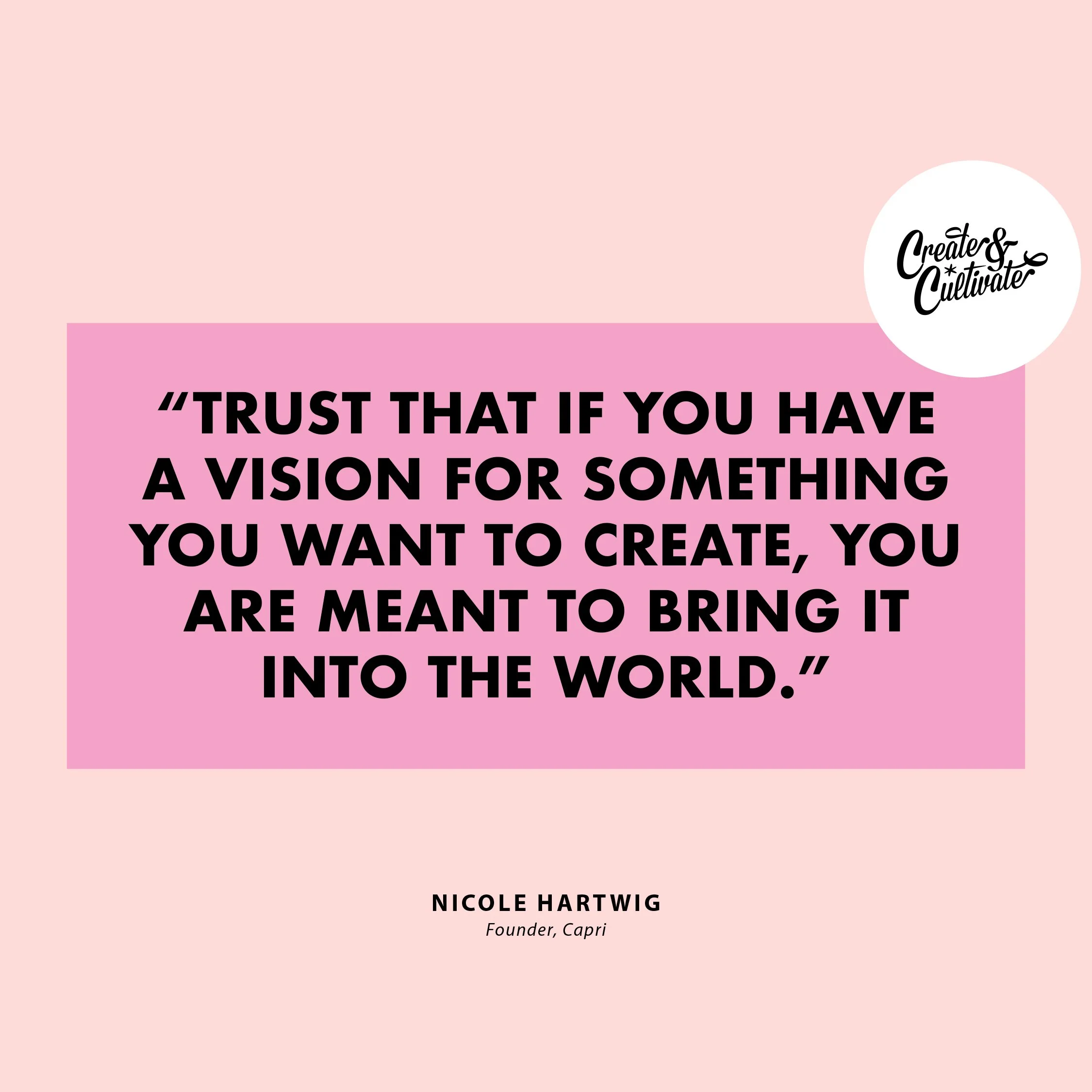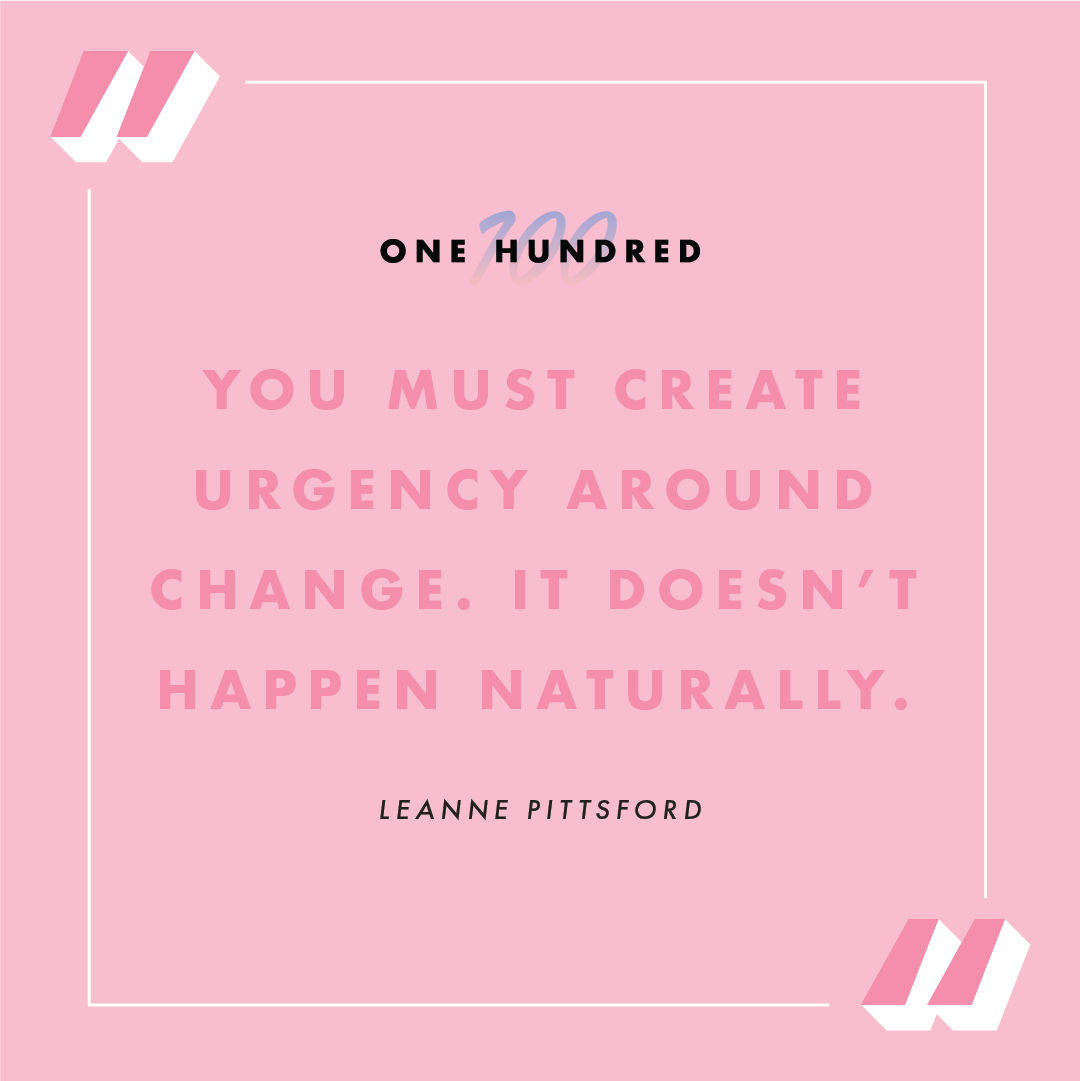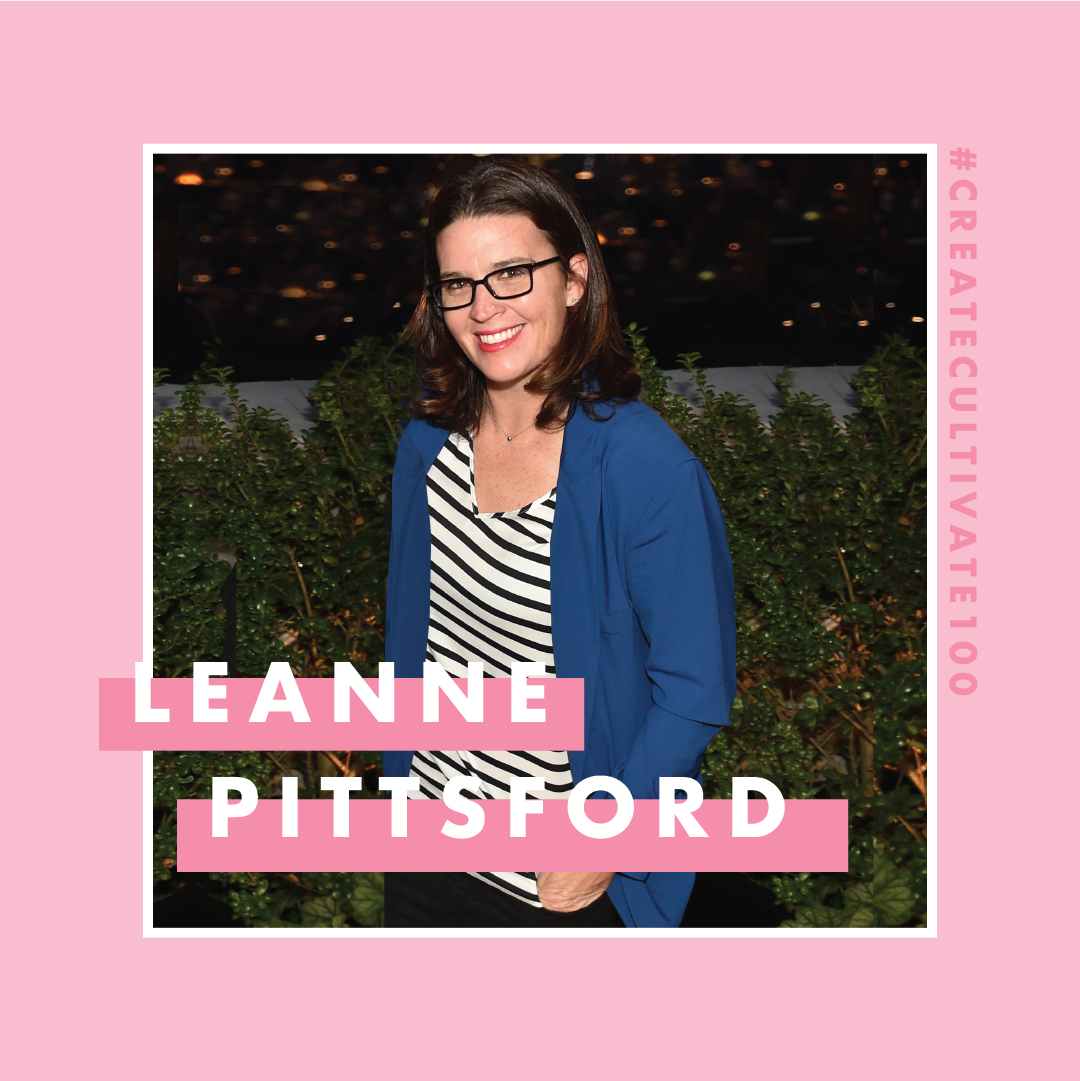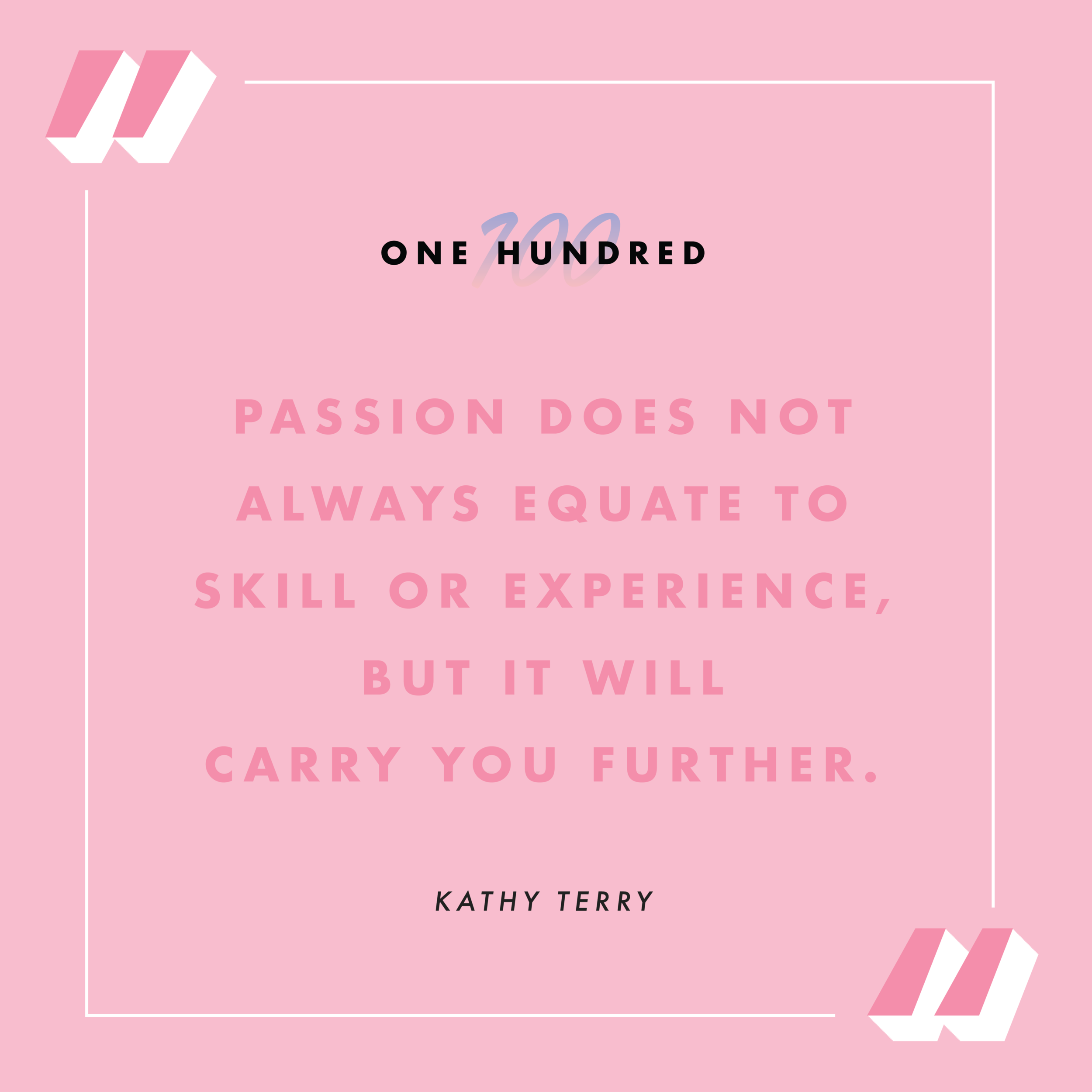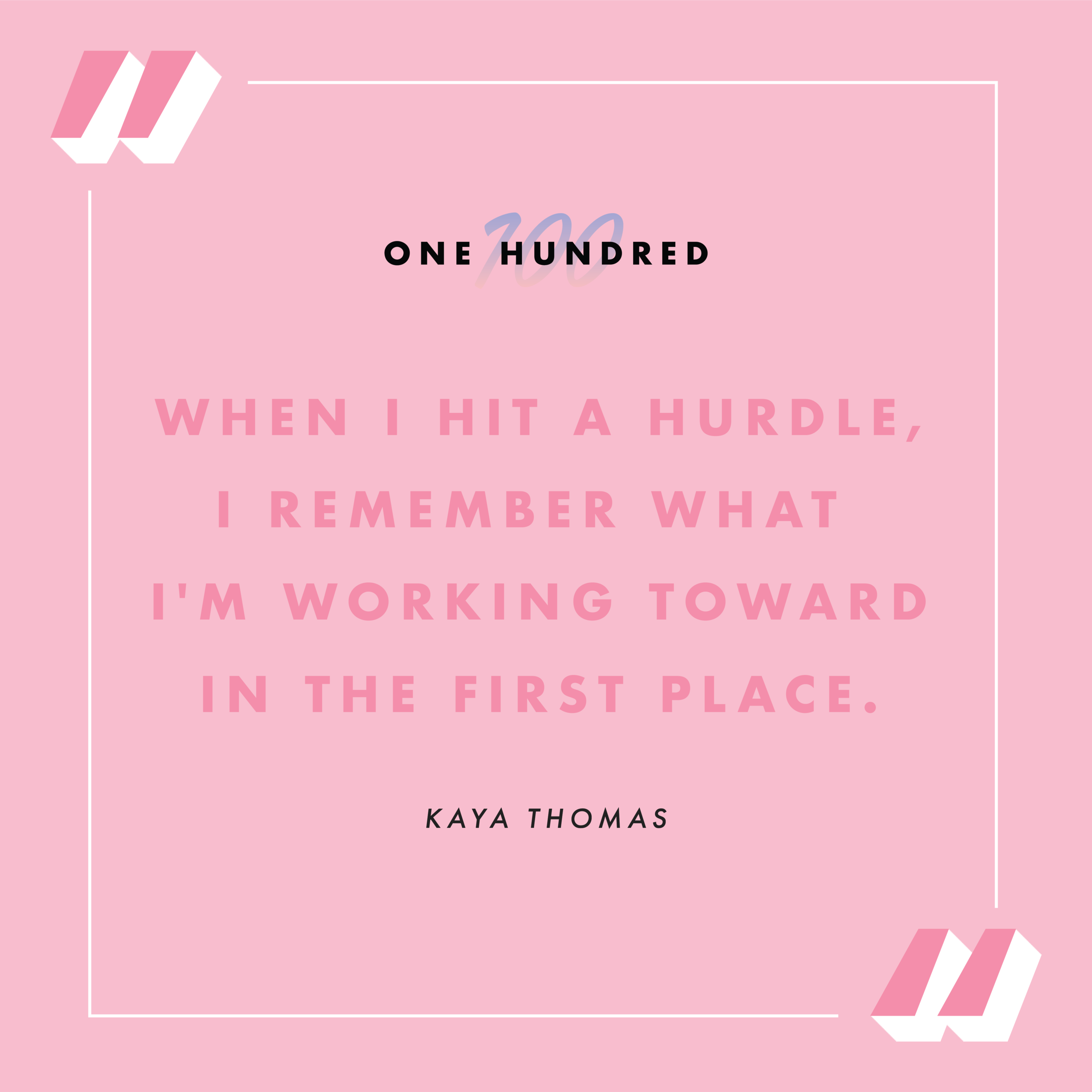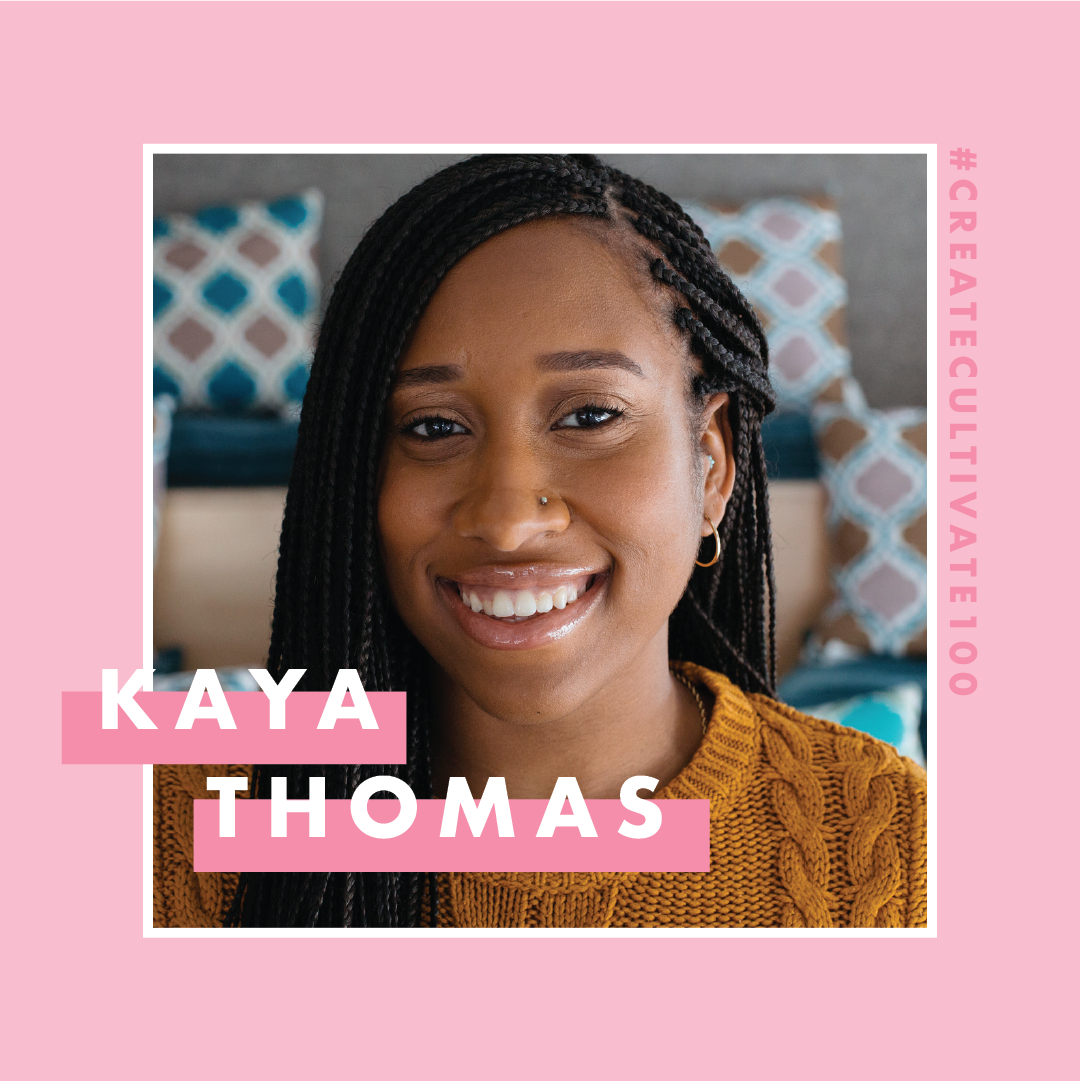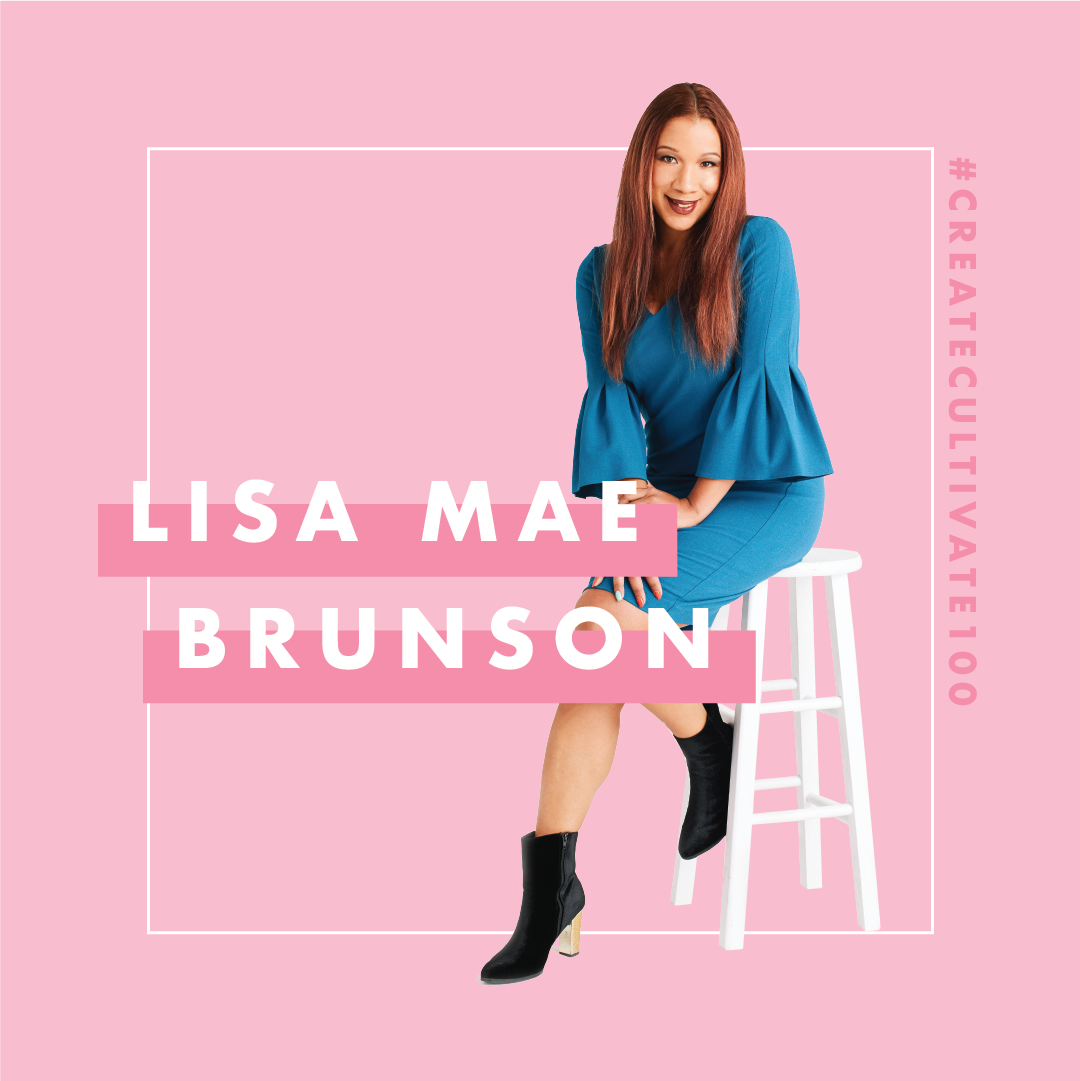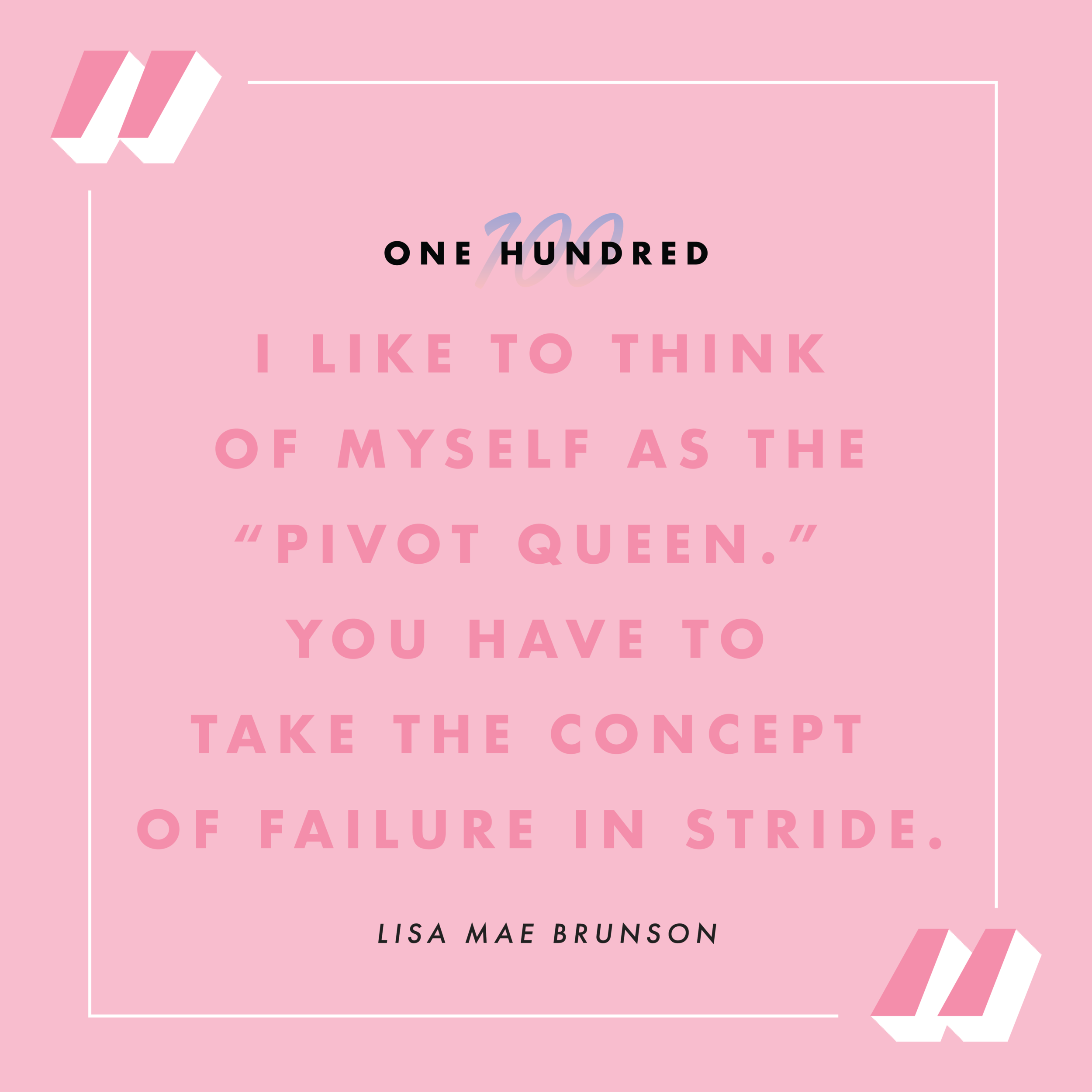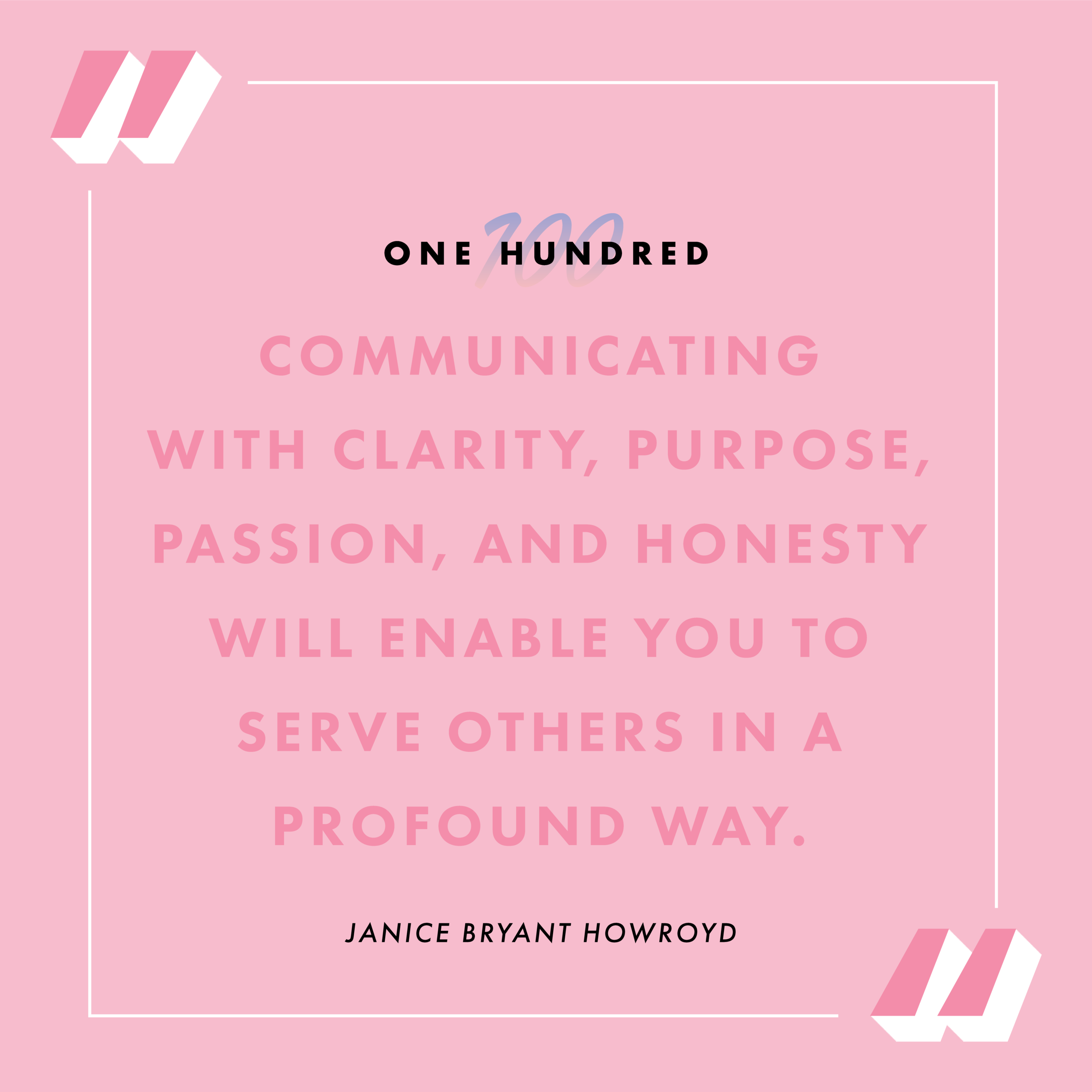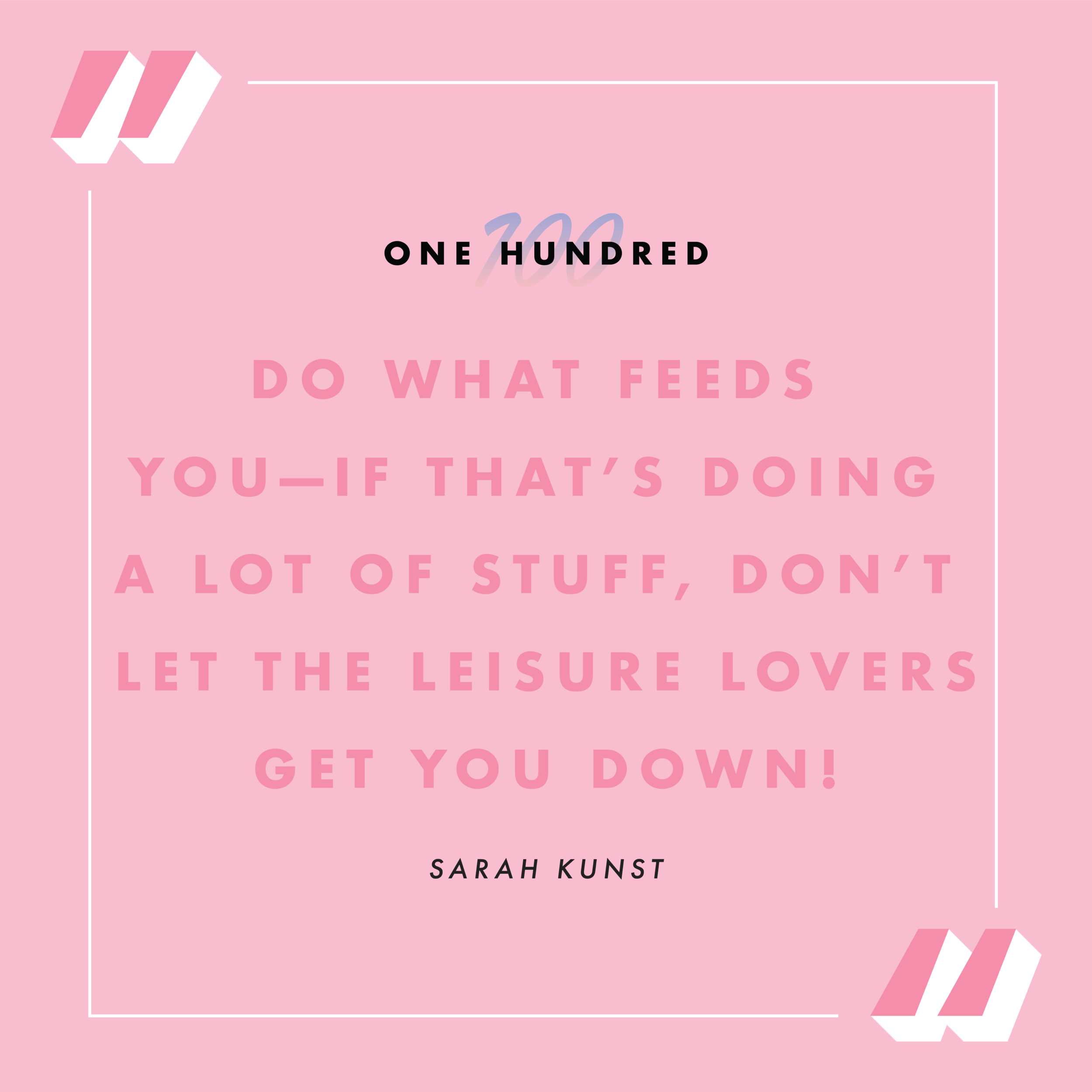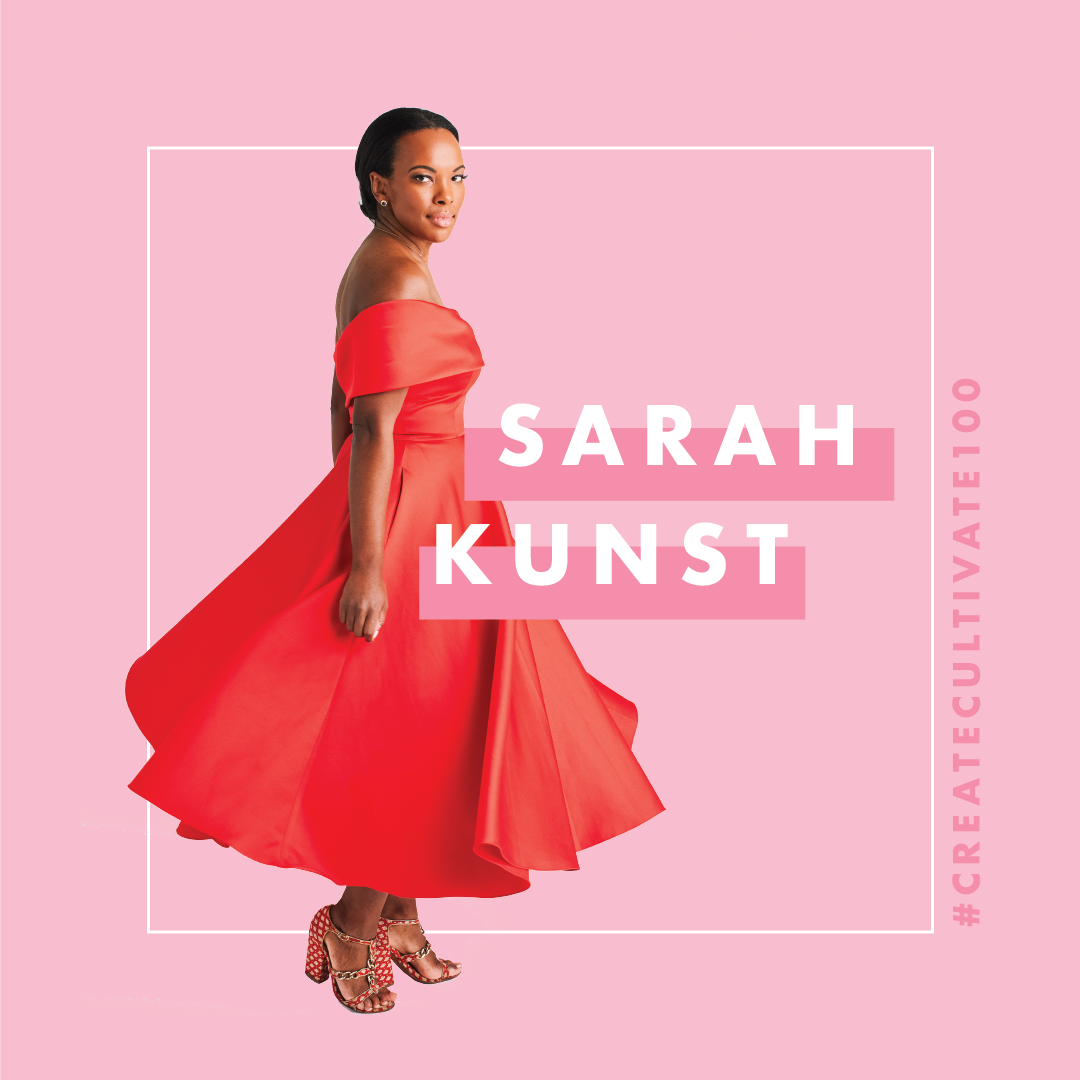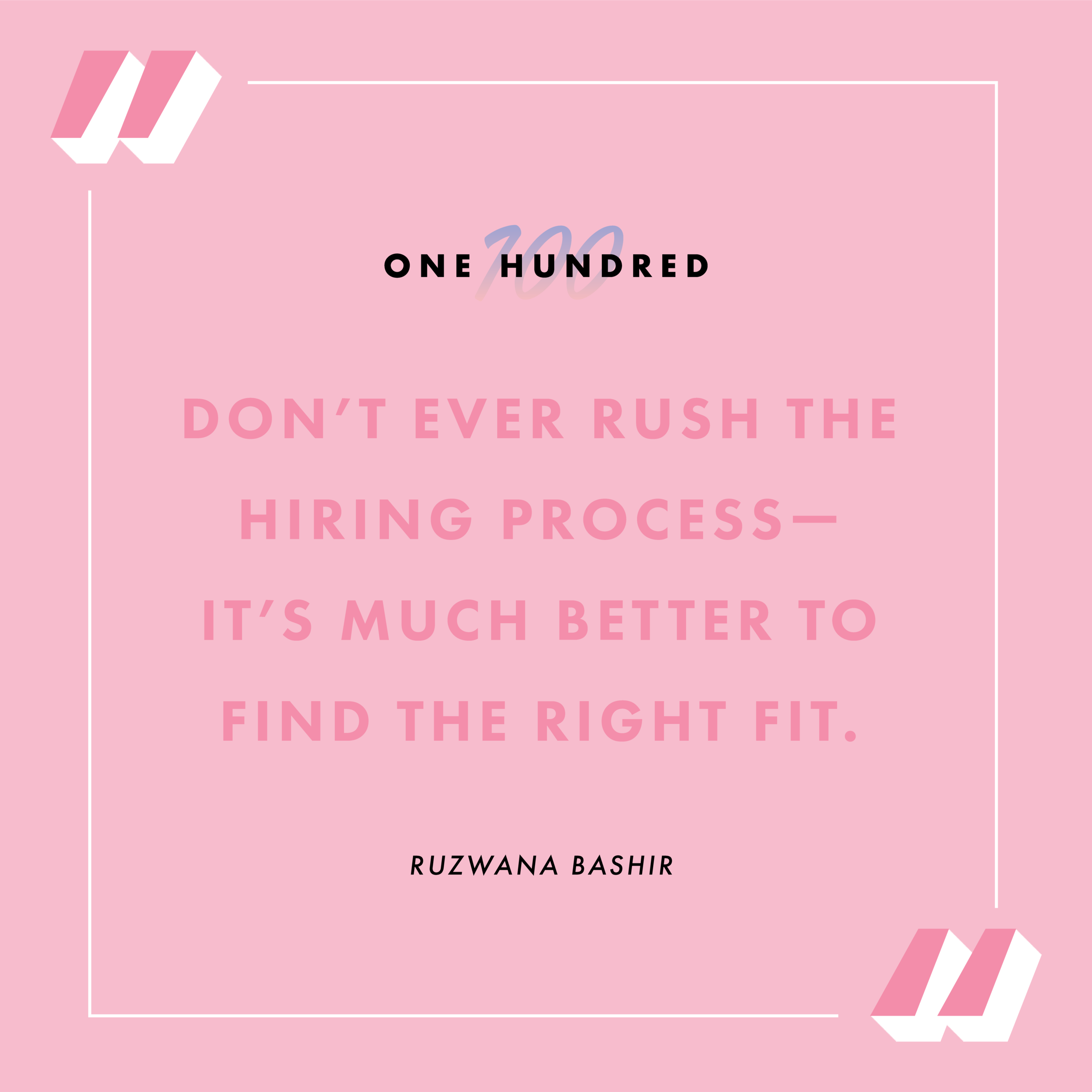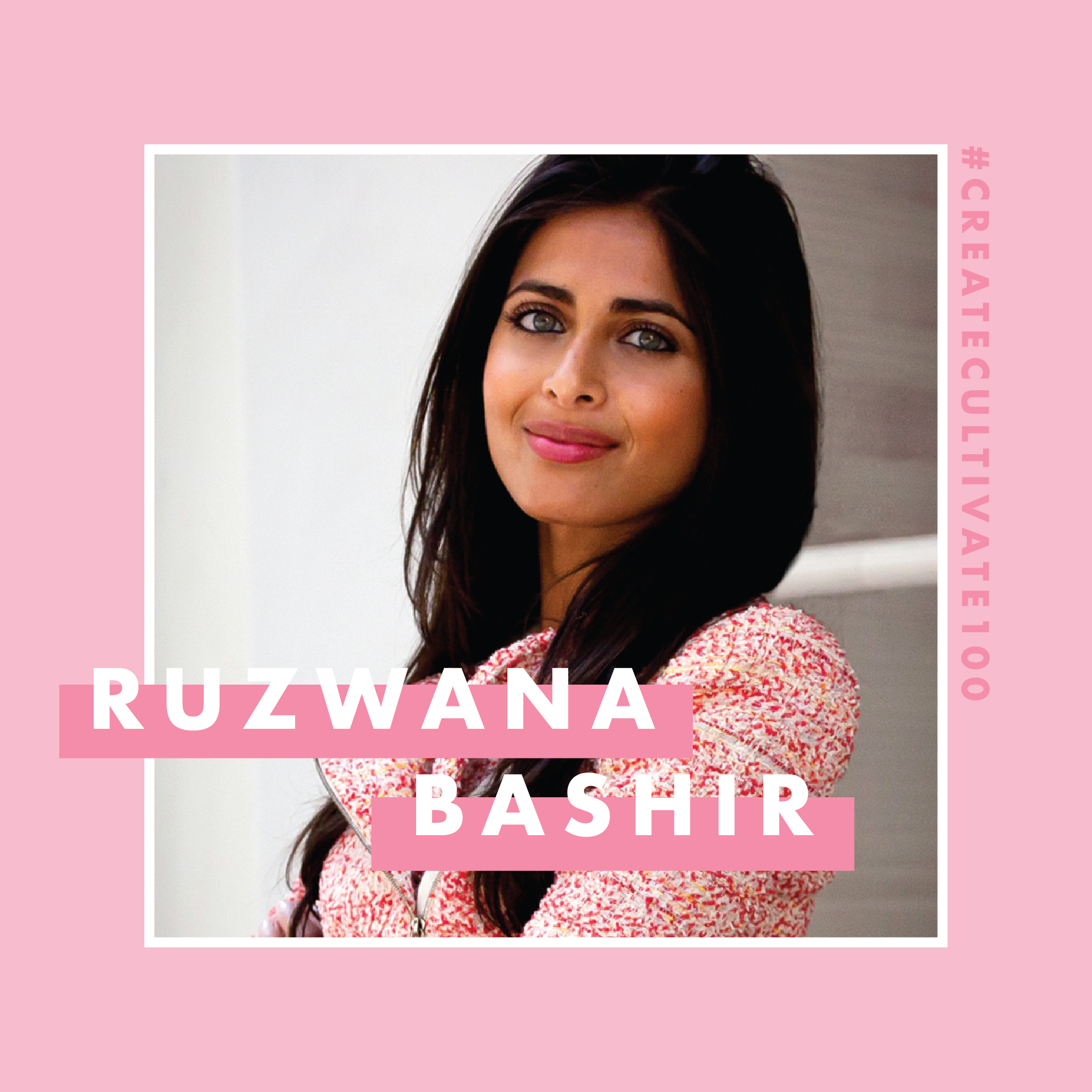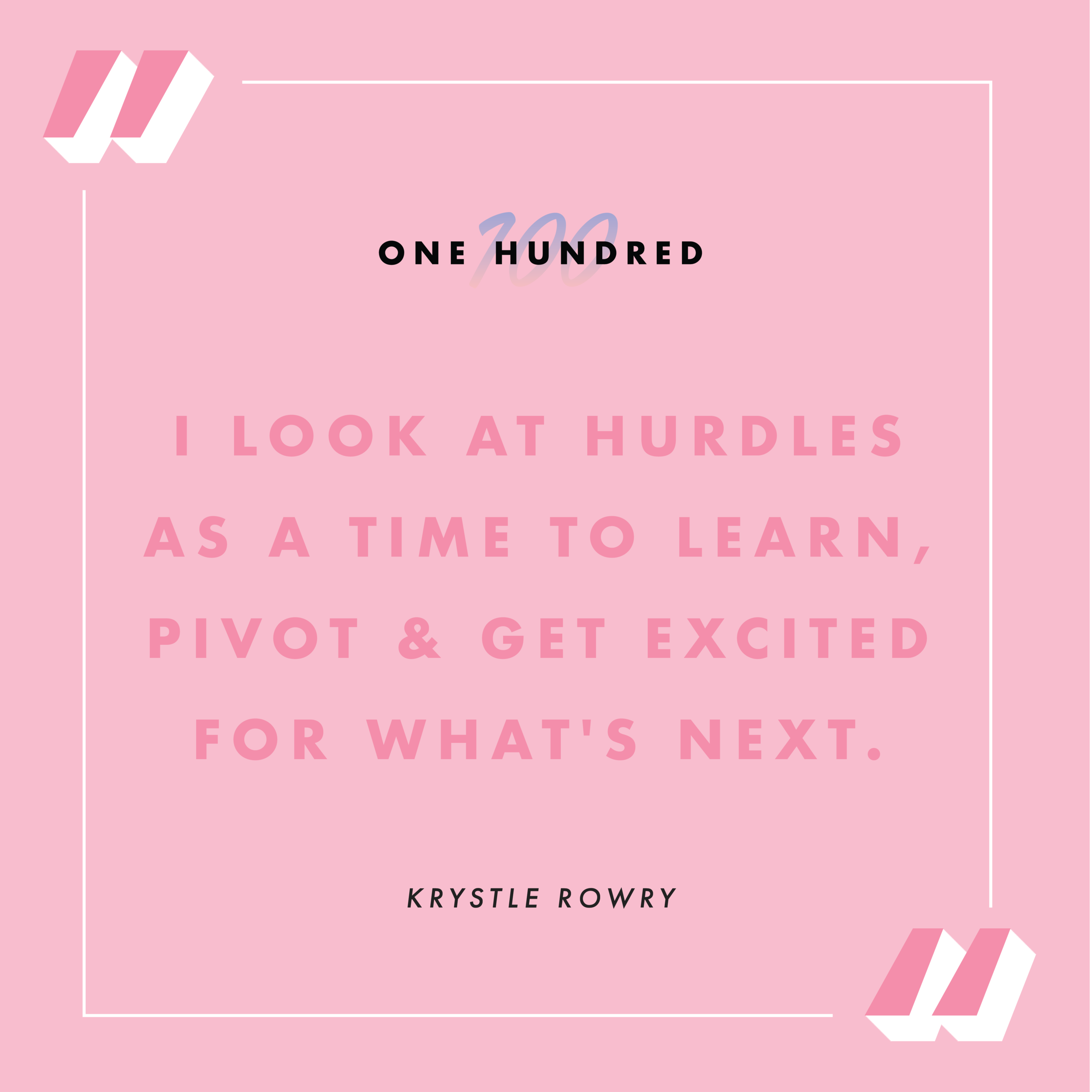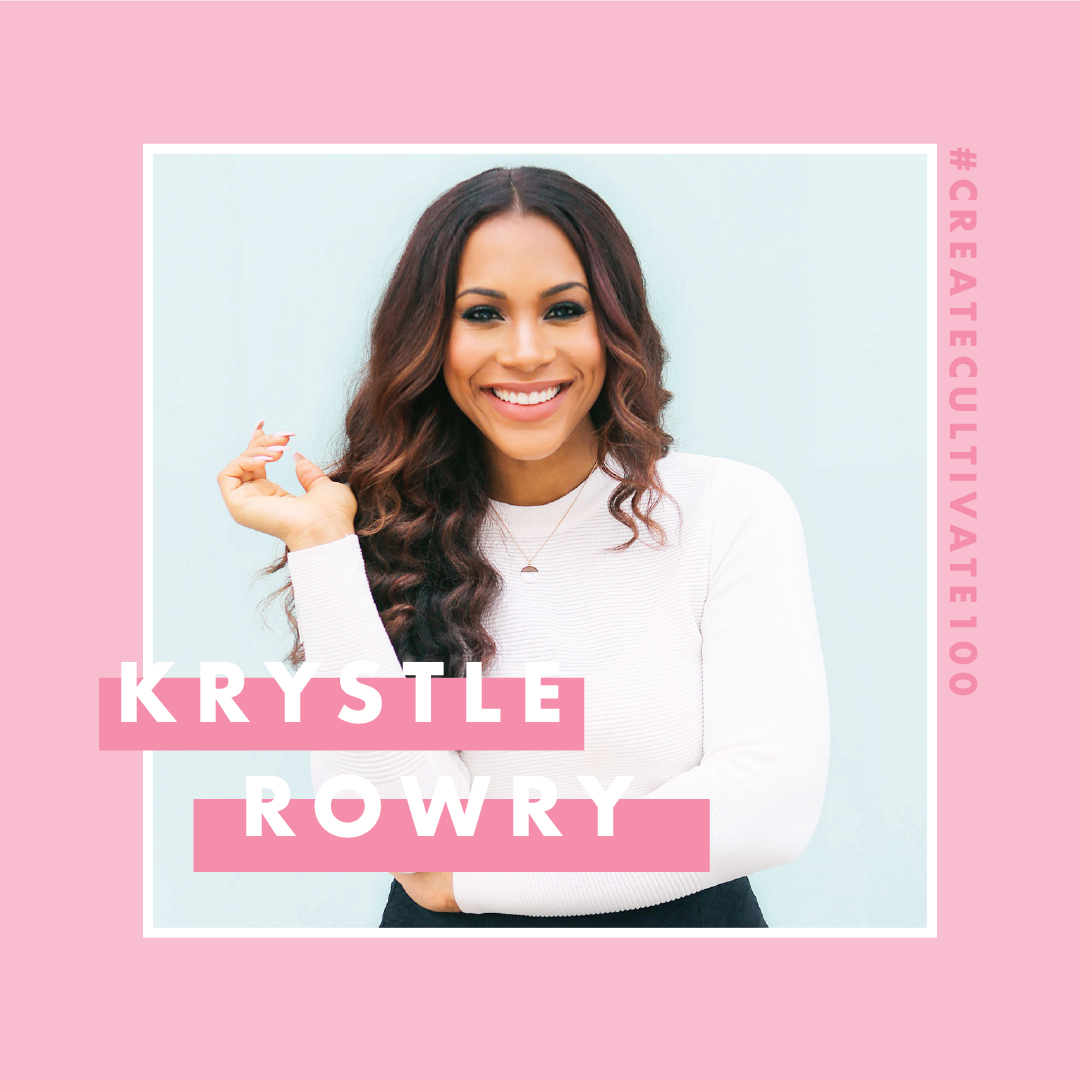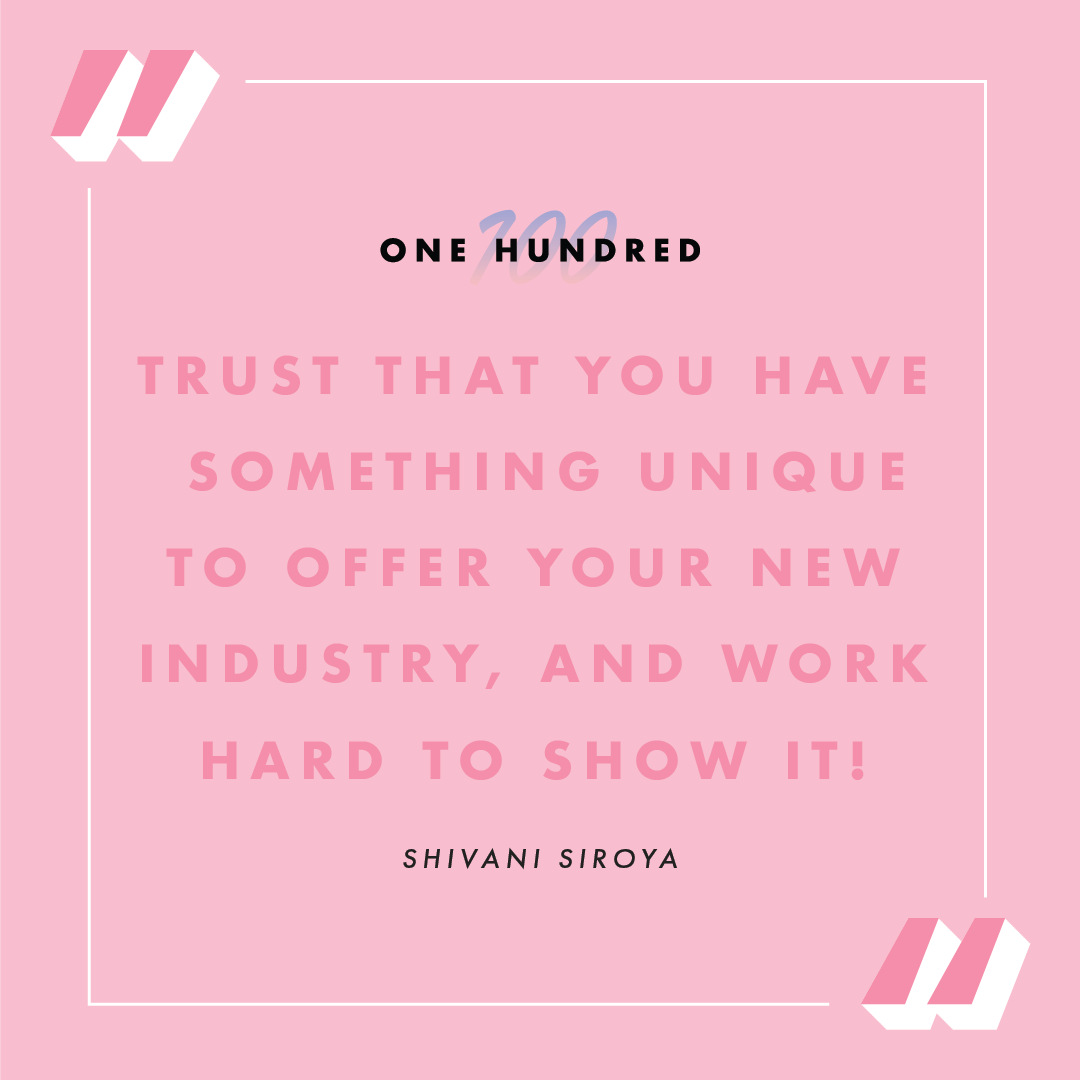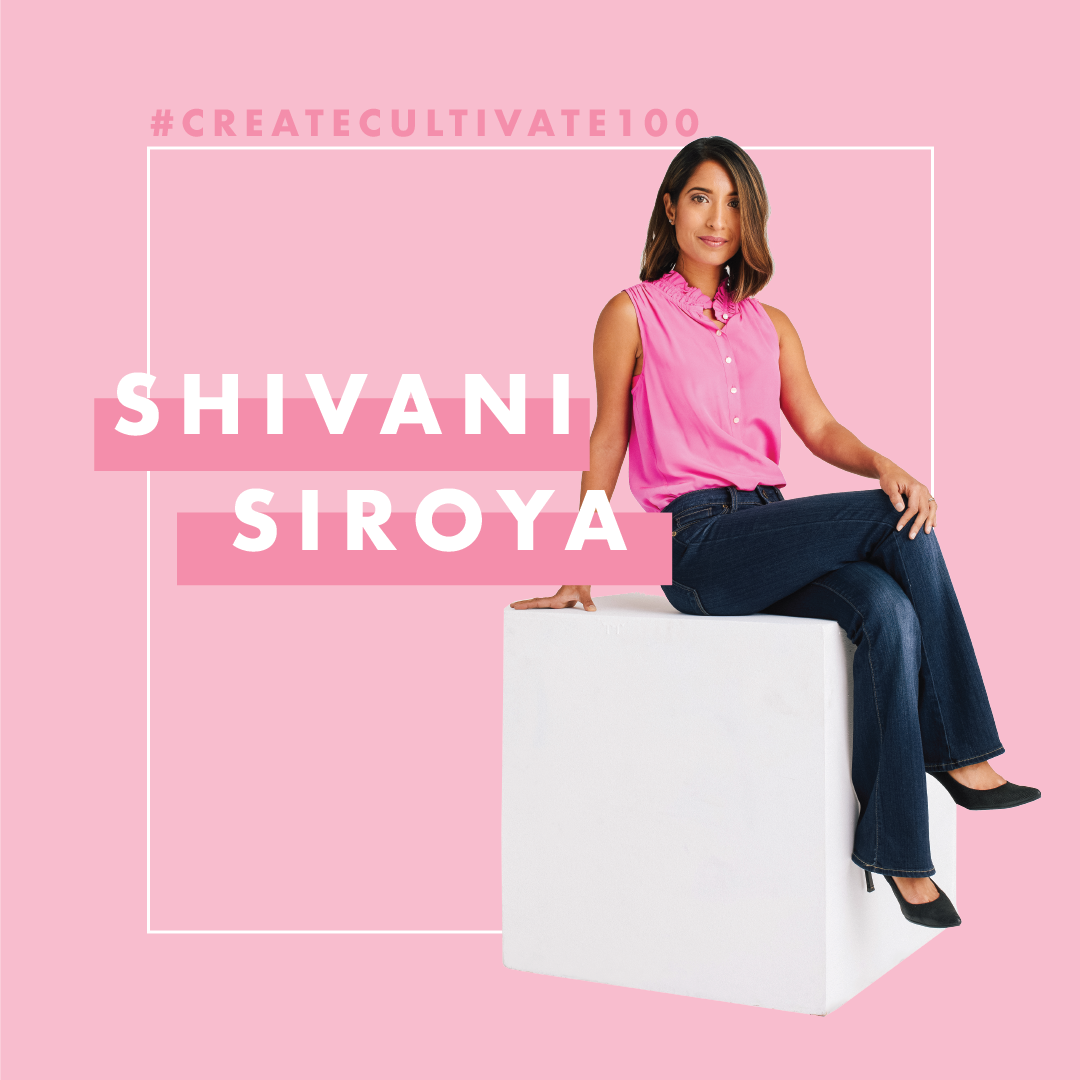This Entrepreneur Is Giving Girls the Tools to Build Long-Term Financial Wellness
The founder of Capri on helping girls cultivate confident money mindsets.
You asked for more content around business finances, so we’re delivering. Welcome to Money Matters where we give you an inside look at the pocketbooks of CEOs and entrepreneurs. In this series, you’ll learn what successful women in business spend on office spaces and employee salaries, how they knew it was time to hire someone to manage their finances, and their best advice for talking about money.
Photo: Courtesy of Nicole Hartwig
Nicole Hartwig learned everything she knows about money from her late Aunt Lynn. “My aunt guided me through all of my financial firsts, often sitting me down with a pencil and paper, teaching me the most foundational financial principles like how to make a budget and how to set a savings goal,” Hartwig tells Create & Cultivate. “She coached me through saving up for my first car by allowing me to make ‘deposits’ into a Tupperware container she kept safe for me in her kitchen drawer.“
So when her aunt passed away in 2013 after a 25-year battle with cancer, Hartwig was inspired to help girls develop financial literacy skills as a way of honoring her late aunt and the values she lived by. “My aunt relentlessly pursued her career goals in finance, slowly working her way up with a steady determination and humble grace, all while battling breast and ovarian cancer for nearly half her life,” explains Hartwig. Thus, Capri, an app designed to teach high-school and college-aged girls financial literacy skills and cultivate confident money mindsets, was born.
Ahead, Create & Cultivate chats with Hartwig about everything from starting her business to bringing on her first hire, and everything in between.
How did you make your first dollar and what did that job teach you that still applies today?
My first job was at a local coffee shop in Metro Detroit when I was 14 or 15. They only hired team members 16 years and older, but I applied anyway. When they asked me the obligatory interview questions about past jobs, I told stories about how I’d taken care of friends during tough times or risen above challenges at school, and I got the job! That experience taught me something that I’ve carried with me ever since: you never know until you try.
Take us back to the beginning. What was the lightbulb moment for your business and what inspired you to pursue this path?
The idea for Capri came from my late Aunt Lynn, who passed away in 2013 after a 25-year battle with cancer. A true Capricorn (the inspiration for the name Capri), my aunt relentlessly pursued her career goals in finance, slowly working her way up with a steady determination and humble grace, all while battling breast and ovarian cancer for nearly half her life.
Entrepreneurship is all about taking calculated risks. What’s the most pivotal financial risk you’ve taken, and how did it change your path?
The most pivotal risk I’ve taken was leaving my full-time job to pursue building Capri. Creating the space, both logistically in my schedule and energetically in my life, changed everything. There’s a lot of advice floating around about waiting to leave your day job until you’re really ready. The truth is that your path depends on a lot of factors: your financial situation, your drive, the opportunity you’re pursuing, your network, etc. There’s no one-size-fits-all answer for when to leave your day job to pursue the thing you’re passionate about.
For me, creating the space was critical; it was essential to the growth of the company. As a sole founder in the early stages of a startup, there is no company without me. If I’m burned out, the company suffers. If I don’t have time to make that meeting, the work doesn’t get done. If I have no space to envision what’s next, the company has no path forward. The degree to which I make space for the creation of this company is directly correlated to our growth and success. Making space for the overall wellness of myself and the company was—and still is—one of the most important actions I’ve taken as a founder.
Where do you think is the most important area for a business owner to focus their financial energy and why?
The needs of your business change with every stage of development and each business is unique. Every founder has a unique set of circumstances within which they’re working, and their business is a direct reflection of that.
Capri is a female-led, bootstrapped, early-stage tech startup. Within our unique set of circumstances, our most important spend was on product development, but we also chose to spend on our brand identity development at the same time. For us, this was vital. We were building brand awareness during a pandemic and we had to rely largely on our digital presence to make that happen. Many would have argued against that expenditure so early on, but for us, in our unique set of circumstances, it was what helped us establish ourselves in our launch market.
As a business owner, you have to trust your gut, because there is no right answer out there. Everyone—founders, operators, investors—will have different advice for you. You have to follow your intuition about the next right step.
What was your first big expense as a business owner and how should small business owners prepare for that now?
Our first big expense was hiring a software development team to build our beta. We intentionally built a true minimum viable product, both for cost savings, and because we knew we’d make edits to the product design once we got the product in front of users.
Aside from the design research and development that led up to our hiring decision, we also did a ton of due diligence and vetting of potential vendors. That took months and months of work. My best advice for founders preparing to build a technical product is to build in a huge cushion for the amount of time it will take!
What are your top three largest expenses every month?
Software development, graphic design, and legal expenses.
In the beginning, how much did you pay yourself and how did you know what to pay yourself?
We’re 2 1/2 years in and I still haven’t paid myself a dollar. That’s not a badge of honor that I wear, it’s just the truth. All the capital we’ve raised has gone to product development and business expenses. We just aren’t at the stage of development where it would be appropriate to pay myself. Once we reach that stage, I’ll add in a modest salary for myself until we’re really rocking and rolling.
Would you recommend other small business owners pay themselves?
Of course, when it makes sense for the business. You don’t build a business to not make money, but you also don’t usually build a business just to pay yourself. You have to wait until it “pencils”—until the financials of the business support a salary.
How did you know you were ready to hire and what advice can you share on preparing for this stage of your business?
I made my first hire after I completed our first accelerator program. I knew I had hit a wall in my own capabilities and I needed someone to help me bring the initial design of the product to life. For every single team hire I’ve made, I’ve shopped from my first-degree network. I cannot recommend this enough. Working with colleagues and friends who were familiar with me, my character, and my working style, allowed me to forge team relationships quickly on an existing foundation of mutual trust. My best advice to other founders preparing for this stage of their business is to comb your network. Literally scroll through LinkedIn and see what your connections are up to. Reach out to people you know who are doing the scope of work that you need, and start that conversation. Expect it to take some time to gain their full trust, but know that you’ll have a headstart working with people you already know personally and/or professionally.
Did you hire an accountant? Who helped you with the financial decisions and setup? What do you recommend or advice do you have for that?
I made all of our financial decisions in the beginning, and I asked trusted people around me when I wasn’t sure how to move forward. For example, when I incorporated the company, I had to choose the total number of shares of the company. I went to business school, but I didn’t know a thing about this part. So I Googled, I made phone calls to anyone I knew who might know a thing or two about it, and I ultimately made a decision based on the information I had (and the very limited amount of money the company had in the bank). This is the beauty of starting a business—it’s truly messy! You cobble together the answer to every single question and decision, and there are a million of them, day after day. It wasn’t until we were a year or more into the business that I brought on a team member with great financial experience. Now we make those decisions together. We still learn as we go, together, and we ask questions when we don’t know the answer.
What apps or software are you using for finances? What has worked and what hasn’t?
In the earliest stages of the business, I used Freshbooks to track what little expenses we had, and I used an Excel spreadsheet template for our financial projections. Now that we’ve raised capital, we use QuickBooks in place of Freshbooks as it’s more sophisticated for reporting purposes, but we still use the same (albeit much more customized) Excel spreadsheet to create our financial projections.
What are some of the tools you use to stay on top of your business financials? What do you recommend for small business owners on a budget?
I loved using Freshbooks in the early days of Capri! It was inexpensive, easy to use, and the interface is honestly delightful. For projections, Excel is great. Get a template from the internet or from someone working in finance or in whatever industry you’re in. If you can get someone to sit with you for a bit to explain the formulas, that’s ideal. You can then take that spreadsheet and make tweaks to it, which you’ll continue to do forever and ever. It’s actually great to familiarize yourself with making projections from the very beginning. A lot of your business success hinges on your ability to understand the relationship between various business expenses and practices.
Do you think women should talk about money and business more? Why?
Yes! Money is still a taboo topic to talk about, and the world of startups is still so male-dominated and so mysterious. When women are profiled for being successful in business, they’ve often already slogged through the toughest part: getting started. Rarely do you hear the real story behind the buzzy headlines; the I-drained-my-401(k)-to-start-the-business story, or the I-moved-in-with-my-parents-to-save-the-company story. Those are the stories women starting businesses need to hear. They need to hear that the messiness they’re experiencing is normal. That successful women didn’t always save up the perfect emergency fund before they launched their companies, or they didn’t get a check from the first VC they had a meeting with. They need to see themselves and their situation reflected in these stories. The truth is that founders who have ivy-league connections and family members in private equity have an easier go of it. If you don’t have those things, starting a business can feel like a hopeless pipe dream. Women without those privileges have made it happen by being scrappy, creative, and persistent. The more we talk about those experiences, the more we encourage women of all backgrounds to go for it.
Do you have a financial mentor? Do you think business owners need one?
I do! I have several. I have one advisor who manages an angel investing group who advises me from an investor’s perspective. I have another advisor who comes from private equity and the finance industry. I have an advisor who coaches startups. And of course, my most cherished mentor is my late Aunt Lynn. Even though she’s no longer with us, her foundational teachings from my teenage years will stick with me forever, and her loving energy is still with me every day.
What is your best piece of financial/money advice for new entrepreneurs?
First, heal your money traumas (we all have them in some form). Reflect on the past experiences and beliefs that might be holding you back. Second, listen to your intuition. It won’t steer you wrong.
Anything else to add?
Just don’t let fear stop you. Don’t let the odds that seem stacked against you stand in your way, whatever they are. Trust—trust, trust, trust—that if you have a vision for something you want to create, you are meant to bring it into the world. Follow what lights you up.
MORE ON THE BLOG
Create & Cultivate 100: STEM & Finance: Leanne Pittsford
“We’re changing the face of the entire tech industry.”
Queer. Inclusive. Badass.
These are the fundamental principles behind Lesbians Who Tech, a global community of 50,000 LGBTQ women, trans and non-binary folks, and allies in tech. These principles also describe the organization’s CEO and founder, Leanne Pittsford.
Leanne describes herself as an entrepreneur, investor, and thought leader at the intersection of technology and economic opportunity. We’d also like to add "cute dog mom” and "humanitarian” to this description. Leanne has spent her career advocating for marginalized groups in STEM fields while also creating tactical solutions for recruiters and companies to find underrepresented tech talent.
Leanne founded several companies under this mission, but Lesbians Who Tech is the largest community she’s formed. Women currently account for one in 15 people in STEM fields, but Leanne’s work will undoubtedly shift that incongruous ratio. In 2019, she’s literally breaking records (more below!), launching new platforms, and gearing up for the Lesbians Who Tech San Francisco Summit, where past speakers have included Hillary Clinton, Sheryl Sandberg, and Lydia Polgreen—to name drop a few. She’s the advocate and ally you might not have known you needed, but you absolutely deserve.
What are you most proud of with Lesbians Who Tech + Allies and why?
We have built the largest LGBTQ technology community in world focused 100% on and for queer women.
Lesbians Who Tech + Allies is the largest LGBTQ technology community in the world -- committed to visibility, intersectionality, and changing the face of technology. In 2012, Pittsford took her frustrations with the preexisting networks dominated by men and cis straight women and channeled them into launching Lesbians Who Tech. The first happy hour event in 2012 attracted 30 LGBTQ women for a night of networking.The 50,000 non-binary, LGBTQ women, queer women of color (and our allies) in tech who make up our community come from every background and live in over 40+ cities worldwide. This year we become the largest professional LGBTQ event in the world and the largest event for women in tech in California.
Our programmatic work includes a coding scholarship for non-binary and LGBTQ women called the Edie Windsor Coding Scholarship Fund, a mentoring program, Bring a Lesbian to Work Day, and a leadership program -- #LWTSQUAD -- focused on supporting our members as they move into senior leadership roles. We're not just creating communities; we're pushing the tech sector to be more inclusive and changing the face of the entire tech industry.
What lead you to start Lesbians Who Tech + Allies?
Lesbians Who Tech + Allies started out as an experiment to prove myself wrong. I wanted to see if there were other lgbtq women in tech who'd want to meet up and talk about the issues facing us in the tech sector. I started with one happy hour in 2012 in San Francisco and soon after we grew to a 1000 person summit in SF. This year, we hosted summits across the globe in San Francisco, New York, London, Tel Aviv, Mexico City, Montreal and more. I think we have to put ourselves out there to try what we think can't be done and see what happens as a result. Without that first happy hour, we wouldn't be where we are now with over 50,000 members, in 52 cities around the world.
What’s been your favorite Lesbians Who Tech + Allies memory or achievement and why?
Interviewing Hillary Clinton for the New York summit this year. To have her walk onto a stage called Lesbians Who Tech and then interview her on everything from technology as a utility to her favorite app.
Also, to be able to honor Edie Windsor by naming our coding scholarship after her was a moment I’ll never forget. We were able to bring her on stage to announce the scholarship and to date we’ve been able to support over 100+ queer, lesbians, gender non-conforming and trans folks gain the skills to enter the tech workforce -- therefore, truly doing the work to change the face of technology.
You once told Forbes that “There are more CEOs in the Fortune 1000 literally named John than there are women”. Do you think this is changing at all? What do you think needs to happen to make this shift?
I very much try to steer conversations away from the focus on individuals. What we have to do is change power structures and create urgency to do that. Why can’t we have 50% women and 50% people of color on corporate boards? We look at Norway and other countries and see that they have implemented quotas. For this country, companies can make public statements that the press can hold them accountable for. I’m honestly surprised that no tech company has said we’re going to be the first to mandate 50% women on our technical team by next year and we want you to hold us accountable to that. Could you imagine if Mark Zuckerberg came out and made a goal like that? Hundreds of companies would follow suit.
I would also love to see the laws changed around quotas, as affirmative action policies like that are illegal in our country. With that, you change the criteria around the prerequisites for jobs. Currently, if a company is looking for a CEO to go public with, the pool of candidates to choose from is mostly white, straight cis-gender men who are all probably named John. That’s the list, and if you’re always looking at the same prerequisite the pool will never change. Power doesn’t give up power. You must create urgency around change. It doesn’t happen naturally.
I’d recommend having quotas to every single tech company out there. And for employees who want to see more diversity in your company: say something! Especially if you’re a man, and especially if you’re a white man. Use that privilege and ask to be on a hiring committee, or just suggest that the next five hires be nontraditional tech hires. The more a company hears that this is important to employees, the more pressure there is to actually change something in the hiring process.
“We’re not just creating communities; we’re pushing the tech sector to be more inclusive & changing the face of the entire tech industry.”
Who are some LGBTQA women in tech/entrepreneurs that you consider your mentors and why?
Megan Smith, 3rd CTO of the US and CEO shift7. One of the first female VPs at Google.
Kara Swisher, Recode
A long time ago, back when President Obama was in office, I was asked to help organize the very first LGBTQ Tech Innovation Summit at the White House. I asked a VP at Google named Megan Smith to come and speak, and, with very little notice, she said yes. It was there that she was recruited to be the next CTO of the United States. That’s the kind of thing that happens when we connect queer women and give them the chance to be visible. That’s the power of events and building relationships. And for queer women especially, visibility doesn’t just happen -- we have to make it happen.Lesbians Who Tech + Allies brings together the people who are, literally, building rocket ships and curing cancer, and we give them the chance to think and work together. We don’t even know yet what kind of impact that will have, but what we’re seeing already has been amazing.
Who are some queer women in tech/entrepreneurs we should keep our eye on and why?
Rose Marcario, Patagonia's CEO
Moj Mahdara, CEO & Founder, BeautyCon
Arlan Hamilton, VC & Founder, Backstage Capital
Diedra Nelson, CFO, The-Wing
What advice do you have for women with great ideas that are afraid to launch them?
I tell women all the time that when you’re the only woman in the room at a tech conference, a pitch or at a meeting, you carry with you the other women who have been in this space before or who want to be. You’re not actually alone, no matter how much it may feel that way. And the more women we can get into tech spaces, the easier it’s going to be for women in the future. I can’t wait.
“I believe in positive persistence + hustle.”
What are some apps you can’t live without?
Blinkist and Texture.
When you hit a bump or hurdle in your career, how do you find a new road + switch gears to find success?
I believe in positive persistence + hustle. With both, you are able to move past bumps in the road, find alternative paths, and move forward toward success.
What are you most excited for 2019?
The launch of Include.io launch and getting Michelle Obama and Lena Waithe on the Lesbians Who Tech main stage!
VIEW THE FULL CREATE & CULTIVATE 100 STEM & FINANCE LIST HERE.
Create & Cultivate 100: STEM & Finance: Katie Mack
A real breakthrough doesn’t happen often, but understanding something for the first time in a new way can be amazing."
There’s a reason that scientists rarely join the pop culture zeitgeist.
“Becoming famous for talking about science is considered self-promotion, even if you're promoting science," says Dr. Katherine J. Mack. But that hasn’t stopped Dr. Mack, who goes by @AstroKatie on Twitter, from using her supernatural talent for breaking down theoretical astrophysics to the general public. And it’s getting her more than a blue checkmark on Twitter— she’s gaining notoriety in a field typically reserved for mid-career men and those who have achieved the field’s crowning peak: a permanent, tenured research position.
But for the self-described astrophysicist/cosmologist, occasional freelance science writer, and connoisseur of airplane food, social media has becomes a vehicle to build her hyperspecific, dark matter-powered personal brand. She understands trolls and clapback culture in a way most scientists could never, and it’s earned her high praise from the likes of J.K. Rowling.
She knows it’s not typical for a scientist to become a social media celebrity, but she sees her public position as a way to direct attention to the field to empower women in STEM careers.
What inspired you to be a cosmologist? Was there a pivotal moment in your life where you realized what you wanted to do?
I’ve always been obsessed with figuring out how things work. When I was a kid, this prompted me to do things like take apart radios or try to build little solar-powered cars out of Legos, but when I learned about things like black holes and spacetime and the Big Bang, I knew I wanted to know how the whole universe works. I’m not sure there was any pivotal moment exactly, but I have vivid memories of going to public talks by people like Stephen Hawking and Paul Davies and being completely fascinated by the kind of things they got to spend their time thinking about. I wanted to do that too.
Can you tell our Create & Cultivate readers a little about the work that you do & any projects that you’re currently working on?
I do theoretical cosmology. Cosmology is basically the study of the whole universe, from beginning to end, on the largest scales and including how it evolves over time. The theoretical part means I don’t use telescopes or do experiments, but rather do my work mostly in equations and computer programs. Because understanding the universe means understanding the fundamentals of physics, I also spend a lot of my time thinking more about the physics of the very very small – particles and fields and things. When you’re trying to understand EVERYTHING, it has a way of pushing you to the boundaries, on both ends of the scale. So I’m really interested in the big questions: where did it all come from, where is it going, what is the universe made of and why does it work the way it does. Of course, you always have to specialize at some point, but in cosmology, even when you’re focused, you can still be incorporating a lot of big fun ideas. My main research work these days is on dark matter (the mysterious, invisible substance that makes up something like 85% of the matter in the universe), how galaxies formed and evolved over time in the early stages of the universe, and the end of the universe – how the cosmos will eventually die. One of the things I really love about this kind of work is that there’s lots of room for creativity, and I get try all the time to think about things in new ways, to figure out how we can learn about these big foundational ideas using the kinds of data we can get from telescopes or experiments.
You’ve built a massive online community. When did you start to see growth & why do you think Twitter has become your go-to platform?
I’ve been on Twitter for a long time, and aside from a few rather sudden shifts, it’s been a pretty steady thing. I feel like Twitter as a platform is perfect for the way I like to talk about science, because it’s well suited to short, pithy statements with maybe a link or a picture attached. It sounds weird to say it, but writing tweets, especially if you want them to connect with people, is a kind of a literary form. It’s a real challenge to get meaningful, intriguing information, or any kind of statement that people will want to share, into a small number of characters, and it can really help you hone your communication skills. I really enjoy the challenge of it, and I like to practice my writing and try to amuse or intrigue or fascinate or delight people. It’s a lot of fun when it works, and the kinds of interactions you can have there with people can be really great.
“There are always SO MANY THINGS to study and to investigate in cosmology, so finding a new project or idea is never difficult. The harder part is getting deep enough into a topic to make a meaningful contribution, and not getting distracted by the latest shiny thing before you’ve finished.”
How has social media helped with sharing your knowledge to your followers?
I guess it’s really a two-part thing. One is that using Twitter to talk about science has given me a lot of practice talking about science – it’s made me think deeply about my work, and it’s prompted me to learn a lot of things in other areas of physics and astronomy that I might not have spent time on. But the fact that it’s a social medium means that I get very clear, instant feedback on anything I’m sharing, so I learn very quickly what kinds of things are confusing, or where I might accidentally mislead people if I’m stating something in an unclear way. It’s made a big difference in helping me with my other writing (in blogs, magazines, and the book I’m currently working on) and in my public speaking. I know what kinds of explanations work well because I know what gets positive responses (and not too much confusion) on Twitter, and I know what really blows people’s minds because on Twitter, they tell me.
What is one app you can’t live without and why?
Twitter, and it’s probably not a good thing. I know that it can be a pretty toxic place sometimes, and it certainly can be a massive time sink, but at the same time, there are a lot of really wonderful clever people on there and I’ve had such a great time connecting with people. Other than that… I listen to a lot of podcasts and audiobooks, so Overcast and Audible are certainly near the top of my list. I’m pretty much always listening to something. There’s a lot to be said for being in the moment and aware of your surroundings and all that but also there’s just so much information in the world and I want to consume all of it.
When you hit a bump or hurdle in your career, how do you find a new road + switch gears to find success?
There are a lot of bumps and hurdles in academia. There’s a lot of rejection and failure just sort of built into the system. You have to try to become inured to it, or at least to be able to accept the lessons without losing your whole sense of self-worth. It’s not easy. And I think for most of us in academia, we go through periods where we feel like we’re not cut out for this. But it helps to share stories and get advice from your peers and mentors and realize that everyone goes through this stuff from time to time. As for switching gears, that’s almost too easy. There are always SO MANY THINGS to study and to investigate in cosmology, so finding a new project or idea is never difficult. The harder part is getting deep enough into a topic to make a meaningful contribution, and not getting distracted by the latest shiny thing before you’ve finished. But really the confidence and the success (when it comes) is largely a result of trying not to pay too much attention to anything other than the work, and just doing what you can. (And a healthy amount of luck, too, obviously.) If you’re gonna crash out, you’ll know, so in the meantime, keep at it and make the most of the opportunities you have. I keep thinking eventually this whole academia thing will stop working out but so far I’m still here and it’s really going pretty well.
“The most exciting part of research is when you learn something really new and interesting. It doesn’t happen very often that it’s a real breakthrough, but making a new connection between two ideas or understanding something for the first time in a new way can be amazing.”
What are you most excited for in 2019?
I’m writing a book about the end of the Universe, called “The End of Everything.” It won’t be published until 2020, but the manuscript is due in 2019 and I’m just really excited about the prospect of having it all together in one place, as a complete piece of work. It’s a lot of fun to write, so far, and I can’t wait to get it out into the world. I’m also doing a massive amount of travel in 2019 (some of it connected to book things) and some of those trips should be a lot of fun.
What about your job makes you feel the most fulfilled?
The most exciting part of research is when you learn something really new and interesting. It doesn’t happen very often that it’s a real breakthrough exactly, but making a new connection between two ideas or understanding something for the first time in a new way can be amazing. The other thing I love about my job is just talking to other people about cosmology. Sometimes it’s colleagues, where we’re bouncing ideas back and forth, and sometimes it’s students or even people outside academia. I love it all. I feel like I’m the sort of person who is smarter when I’m in conversation than when I’m just mulling things over on my own. And luckily, my job isn’t anywhere near as solitary as one might imagine. I’m constantly giving talks, going to conferences, and talking with collaborators, in addition to all the teaching and public science. There are lots of opportunities to just think out loud, and I love that.
What’s the best piece of advice you’ve ever been given?
At various times in my life, in the midst of job applications or at other times of uncertainty, I’ve heard the advice that instead of trying to conform to some ideal of the position you’re looking for, you should focus on the strengths you have that make you unique. In my case, that meant that instead of trying to be a head-down physics-publication-machine, I should probably embrace the non-traditional part of what I do and pitch the work I’ve done in science outreach as an asset. And that worked out, but even if it hadn’t, I’m not sure I would have been happy in a job that didn’t let me participate in that kind of work. But really just in general, a lot of the most successful people I know (by their own subjective definitions of success) are people who have discovered the thing that they can do better than anyone else, and built a career around that. It’s not always possible to do this, of course – I always hesitate to give advice about careers or success because I know that most of the advice you get is based on a combination of privilege and survivor bias – but if you’re in a position where you can plausibly carve out a niche for yourself, you might be surprised at the kinds of things that can ultimately pay off. If you have some really unique talent, don’t write it off as frivolous right away just because it’s not what people might expect to see.
What’s been the biggest surprise or highlight of your career to date?
The biggest surprise has probably been all the opportunities to travel and meet amazing people. When I first started thinking about getting into physics, I imagined there would be a lot of sitting around writing out equations in an office (and there is a lot of that!) but I didn’t count on the part where I would travel the world going to conferences and collaboration meetings and giving talks. The first research project I ever got involved in was in Japan; a few years later I was doing a summer project in Germany. I’ve held postdoctoral fellowship positions in the UK and Australia, and I’ve gone to conferences and workshops and done teaching gigs and public science things in more countries than I can even keep track of, on five continents. It’s been a real adventure.
VIEW THE FULL CREATE & CULTIVATE 100 STEM & FINANCE LIST HERE.
Create & Cultivate 100: STEM & Finance: Kathy Terry
“Passion does not always equate to skill or experience, but it will carry you further.”
Kathy Terry was fed up with frivolous gift-giving...so she decided to change the game.
She launched inLieu, a social giving app that allows you to give a gift to charity in honor of someone, instead of bringing a bottle of wine, sending a small token as a thank-you, or giving a birthday gift your friend doesn’t need. It’s a welcome addition to the social space, making it easy to directly support your favorite charities (the app lists more than 1.8 million verified nonprofits) and make your friends feel good, too.
We love what Kathy has created and can’t wait to watch inLieu grow and thrive—and in turn, see how it changes the world one donation at a time.
Tell us about your company, inLieu. What did you see missing from the charity market and what did you seek to build?
inLieu was created to fill a gap between material gift giving and donating to the causes we love. I felt a push to show up differently to my friends especially in the way I expressed my love, appreciation and gratitude. I was tired of the obligatory gift giving -- the hostess gifts, thank you gifts, birthday gifts -- we are all just checking the box. We are gifting things to friends, family, co-workers, and others that 1) they don’t really need or want 2) worse, aren’t fulfilling our desire to show appreciation and gratitude, and 3) are leaving billions unspent and misspent in a world that could use those billions to be a part of the solution to many of society’s ills. So I asked myself, what if we decided to skip the obligatory or last minute gift and instead give the gift of giving back, replacing material gifts with donations? This intentional giving is what I saw missing in the gift and charity markets There was no platform that allowed me to donate in honor of a friend with a personal message via text or email at anytime from anywhere. inLieu gives us the opportunity to participate in changing the world, one gift at a time.
Your app is social-first. How has social media changed the giving game?
Social media has changed the world! Frankly, I’m not sure I have embraced it fully yet, but it’s here to stay. In fact, my initial vision of inLieu did not include the social feed and it wasn’t until I committed to building it, that I decide it needed to be social. At the time, I had no social presence. No Facebook, no Twitter account, and only an old abandoned Instagram account. But, I started using Venmo and found myself scrolling through the feed and realized if I wanted to build an app to encourage others to give, it would have to be social. If people (including me) were spending time seeing who was spending money on pizza or paying their babysitters then it only made sense to use it to help people learn about the causes their friends are passionate about, and encourage others to donate and make an impact too. I guess you could say, I was slow to catching on. I realized social media is where we connect, get inspiration, find our tribe, find our passions and share our thoughts and beliefs with the world. It only makes sense to use social media to not just change the world, but to make it better!
What about your job makes you feel the most fulfilled?
Every month I send checks out to nonprofits all over the US that have received donations in the app. Knowing that the majority of these donations represent money that would have normally been spent on material gifts but was instead turned into impact puts a little smile on my face. In fact, every dollar we raise goes towards decreasing the amount of money that will sit on unused gift cards, regifted candles and unwanted gifts. Did you know that there is currently $45B (yes that is a B for billion) sitting on unused gift cards and $14B is spent on greeting cards every year. Together we can all make a difference.
What tech announcement or new release are you most looking forward to this year?
I’m very excited about our redesign that will be fully released in the next few months. We have spent a lot of time listening to users and making updates to the app that will make inLieu even more social, engaging and easy to use!
What is one app (other than yours!) you can’t live without and why?
It would either be Venmo or my Podcast app. I wouldn’t be able to pay my babysitters without Venmo and I am a fanatic about listening to podcasts. I’m a big runner...it’s my stress reliever, where I do my most creative thinking (I actually thought of inLieu while out on a long run!) and it’s when I listen to my podcasts. My favorite is How I Built This. I may have a secret crush on Guy Raz because I also love Ted Radio Hour (not that you asked and now it’s not a secret).
Who are some women you look up to in your field?
Brooklyn Decker and Whitney Casey, founders of Finery, are definitely on the top of my list. They are both from Austin and could not have been more encouraging and helpful while I was building inLieu. In fact, as soon as I launched Whitney downloaded the app and sent me a google doc with screenshots that included UX/UI recommendations. These two women launched a technology business with no technology experience, which gave me the confidence to do the same.
Elizabeth Cutler and Julie Rice are the visionaries behind SoulCycle and I love how they took an already existing model and turned it on it’s head. That’s how you disrupt shit!
I love the drive and passion of Jenn Hyman and Jenny Fleiss, founders of Rent the Runway. Their “dream big and go after it” mentality is exactly what you need when you start a business. They have changed the way we think about shopping and have created a market that didn’t exist before. I’m definitely on Team JJ, and a big fan!
I would be remiss to not include Whitney Wolfe Herd, another Austinite who is definitely empowering women to make the first move through Bumble. I think Whitney has set an amazing example for other women to take control of their life, follow their passion and not let anyone else define the person you should be.
“Surround yourself with people smarter than you and don’t be afraid to ask for help.”
When you hit a bump or hurdle in your career, how do you find a new road + switch gears to find success?
I tell my girls all the time (ages 8 & 10) that the only thing between them and success is hard work and passion, but most importantly passion. Passion does not always equate to skill or experience, but it will carry you further. But you have to make sure that even when you are driven by passion, you are also nimble. Without flexibility, you can end up off course. You can get stuck in one direction, ultimately missing the curve in the road.f you are too rigid, you won’t be able to pivot and that can lead to disaster! inLieu is the fourth business I’ve started, and there are always bumps and hurdles. In fact, there are more hard days then easy ones, and you have to always remind yourself to find the joy in as many moments as you can. LIke they say, the joy has to be in the journey (not sure if anyone actually said those exact words, but it does sound good!).
What’s the best piece of advice you’ve ever been given?
Surround yourself with people smarter than you and don’t be afraid to ask for help!
What’s been the biggest surprise or highlight of your career to date?
My biggest surprise? How hard it is to change a behavior! When I launched inLieu I was naive thinking that everyone was already in the same mindset I was about giving differently. Boy, was I surprised when I realized that not only did I build a high-touch consumer product, but I also had to change people’s behavior and their mindset around giving. Holy Hell, where is the exit?
My biggest highlight? When I saw people who were initially skeptical about the entire idea of inLieu and the idea of giving a donation unsolicited in lieu of a gift, turn into inLieu super-users. I have actually witnessed people’s behaviour change firsthand, and it’s moved me to keep pushing.We have users who have donated over 20, 40, 60 times since we launched in March 2018. I LOVE IT!
What are you most excited about in 2019?
I am excited to see what change we can ignite in the world by changing the way we give!
VIEW THE FULL CREATE & CULTIVATE 100 STEM & FINANCE LIST HERE.
Create & Cultivate 100: STEM & Finance: Kaya Thomas
“All experiences are different depending on the person, so there's really no one size fits all advice.”
Kaya Thomas was been turning heads in the tech industry long before she graduated from Dartmouth in 2017. Her talent is rivaled by her enterprising character. She quite literally taught herself how to code by enrolling in free coding classes online, then went on to switch her major from environmental engineering to computer science once she unlocked her passion.
Inspired by the very organization where she now mentors students, Black Girls Code, Kaya is steadfast on her mission to empower more women of color in the tech industry and to shape a more inclusive Silicon Valley culture. She’s not here for your middle management glass ceilings. She’s here for the C-suite.
This mission laid the foundation for her to create We Read Too, an iOS app that helps readers discover books for and by people of color. Frustrated by difficulty in finding authors of color or books with diverse characters, she took it upon herself to build the ultimate catalogue. You know, on her downtime as an intern at Time, Inc. She’s got accolades on accolodates and has been recognized by the queen herself, Michelle Obama. Her Big Development Energy has taken her talents to Slack where she currently works as an engineer, and she also stays active as a volunteer mentor with Black Girls Code and Google’s Made With Code.
You’ve referred to not wanting to be “the only” when it comes to being a black woman in the tech industry. What do you see for the future of black women in the tech industry?
I see a future where black women are not "the only" on their teams at tech companies, but are also the CEOs, CTOs, and on the board of directors. We have the potential to go way beyond just being employees, but also creating our own companies and technologies. The real change in the tech industry will happen when we have more underrepresented folks in C-suite positions and on company boards.
What tech announcement or new release are you most looking forward to this year?
June is always the most exciting time for me as an iOS developer. That's when Apple hosts their Worldwide Developer Conference and announces all the updates to their operating systems. As iOS developers, these announcements create new opportunities for us to try out new APIs and new features in our apps.
As the founder of We Read Too, an app dedicated to featuring titles written by authors of color, what books are on your own reading list right now and why?
A series I've wanted to read for awhile now is The Broken Earth trilogy by N.K. Jemisin. Jemisin recently won her third Hugo award in a row, and was the first person ever to do so. She's so inspiring to me as a black woman who is succeeding immensely in her field and creating better representation in literature.
Who is a black woman in tech who inspires you and why?
Arquay Harris is a director of engineering at Slack and she's been a huge inspiration since I joined the company in 2017. She has incredible insight on managing engineers and on how to advocate for your own career. One of the most inspiring things about Arquay is how she cares so much about passing the torch and making sure that other underrepresented folks can create a successful career path for themselves.
What is one app you can’t live without and why?
The Notes app that comes with the iPhone! I am always jotting down notes or lists that come to my mind and I use the Notes app which syncs across all my devices.
When you hit a bump or hurdle in your career, how do you find a new road + switch gears to find success?
Whenever I hit a hurdle, I try to remember what I'm working towards in the first place. If it's no longer clear how my current work is contributing to some of my larger goals or overall purpose, then it's time to move on and find a new opportunity that will.
What about your job makes you feel the most fulfilled?
One of the things I love most about being a developer is being able to reach people through the software I build. It's so fulfilling to talk with people who have used something you've made and hear how it improved their life, even in some really small way.
“Take advice with a grain of salt! All experiences are different depending on the person, so there’s really no one size fits all advice.”
What’s the best piece of advice you’ve ever been given?
I think the best advice I've been given is to take advice with a grain of salt! All experiences are different depending on the person, so there's really no one size fits all advice. It's important to recognize the context and circumstances behind the advice you're being given and figure out if it will still work for you given your own circumstances.
What’s been the biggest surprise or highlight of your career to date?
The biggest highlight of my career to date was being honored by First Lady Michelle Obama at the 2015 Black Girls Rock award show. I would have never imagined seeing a First Lady of the United States shout "Black Girls Rock!" or hearing her say my name in reference to celebrating education and the perseverance of black women. It was one of the greatest moments of my life!
VIEW THE FULL CREATE & CULTIVATE 100 STEM & FINANCE LIST HERE.
Create & Cultivate 100: STEM & Finance: Lisa Mae Brunson
“You just have to show up.”
STEM industries are driving the future, and Lisa Mae Brunson is hellbent on making sure that women have a seat at the table. The social innovator is the founder of Wonder Women Tech, a platform, community, and conference series for women and underrepresented groups in STEM fields. The non-profit offers coding classes, workshops, hackathons, diversity career fairs, STEAM camps, community inclusion activities, thought leadership, and other dynamic programming geared towards empowering women, girls, people of color, LGBTQ, the underrepresented, and other diverse communities.
Lisa is quick to call out her industry, noting that while women constitute half of the total population, only about 20 percent of executive roles at tech companies are occupied by women. Her mission is to change that statistic, and that begins with fostering relationships, prompting a societal dialogue around inclusivity, working with Fortune 500 companies, and empowering a new generation of STEM talent.
Lisa is a modern day Wonder Woman ready to make a global impact, and she’s working diligently behind the scenes to ensure a diverse future where everyone feels a sense of belonging.
When did you discover a need for something like Wonder Women Tech and what inspired you to pursue it?
There has always been a need for diversity and inclusion to be a focal point for governments, companies, and businesses to develop strategies and solid initiatives. It became really clear to me that women and the underrepresented needed another platform that provided opportunities that went beyond the stage, and included mentorship, career development, and access to job opportunities when I developed my first Wonder Women Tech Conference in 2015. So many people got behind my vision and wanted to see WWT come to life and support in meaningful ways, from providing venue space, to raising their hand to speak, to sponsoring with funding and partnerships.
What separates Wonder Women Tech from any other women in tech conference?
From day one, Wonder Women Tech has forged partnerships with mayors, governments, schools, Fortune 500s, organizations, and individuals to create a dynamic ecosystem where policy, empowerment, and exploring the cross-sectionality of industries is accomplished. Working directly with those who make policy, and who educate our future and current generations, as well as with the companies that drive the global market, provides us the opportunity to scale globally, create dynamic solutions, and bridge the gap across industries. We also build our foundation on collaboration. Working together within an aligned partnership is what will create the greatest impact. We are not an “event,” we are creating change.
What is your advice on getting the next generations further involved in the technology industry?
Reach out and provide opportunities for youth to be exposed to STEAM fields and activities. Mentor where you can so that these students can feel empowered and see living examples of the generation who are innovating before them. Teach our youth to be leaders and watch them develop into powerful forces within the tech industry. Where possible, providing funding, education, and access to programs so there are no economic or other barriers to entry.
You’re also the founder of the I Am Equality Campaign. What do you see for the future of equality and representation in the field of technology?
I am thrilled to see more companies and organizations creating initiatives that provide visibility for the underrepresented, as well as education and community building. My focus in 2019 is to inspire people to think about how they build a “Culture of Belonging,” beyond “diversity and inclusion,” and provide the foundation for cultivating equality and a safe space for representation within workspaces and communities. The powerful movements we have seen over the last few years have provided a fertile ground for these kinds of initiatives to bloom and blossom. Companies are not only becoming more aware of the importance of equality and representation within the tech industry, but they are also putting money and support behind these projects.
What is one app you can’t live without and why?
Right now the best app I am using is WhatsApp. It allows me to keep in communication with my team which is spread across Hawaii, California, Texas, Florida, D.C., Canada, Brazil and London, as well as my international partners. This free app is a lifesaver!
When you hit a bump or hurdle in your career, how do you find a new road + switch gears to find success?
I like to think of myself as the “Pivot Queen.” One thing I have learned as a visionary is that you have to take the concept of “failure” in stride. I’ve come to understand that everything I do is R&D (research and development) and it provides me the opportunity to innovate again and again. Early in my career, I used to get really upset and sad when I met with “failure,” but I have since learned to pick myself up, celebrate the small and large victories, and commit to learning what I need to let go of and what I need to improve for the next iteration. I have taught myself and my team to focus on celebrating the fact that we are still here, and we are taking steps forward.
What are you most excited for in 2019?
I am very excited to finally have our 501(c)(3) status which will allow us access to grant funding, which will allow us to create an even greater impact and hire staff! And I am excited to host our first LatinX Summit in Brazil and explore climate change and conservation, a new program focus.
What about your job makes you feel the most fulfilled?
Whenever I feel like giving up, I go to my inbox, find my folder marked “Testimonials,” and read the hundreds that I have filed away over the years. The lives that have been impacted by the work we do are what keeps me inspired and committed to this work. I am grateful that every single day I am not only doing what I love, but we are creating real change that is becoming its own legacy. That is definitely fulfilling.
“Rev. Jesse Jackson told me something so basic that it was also profoundly powerful—he said, “You just have to show up.” Those two words are something I carry with me every day when I feel like giving up.”
What’s the best piece of advice you’ve ever been given?
I had the honor of interviewing Rev. Jesse Jackson on my stage in 2017, and at the time I was feeling really defeated with burnout. I asked him how he continued to move forward when there are so many doors slammed and it feels like the civil rights movement and efforts towards equality are taking a step backwards. Rev. Jackson told me something so basic that it was also profoundly powerful—he said, “You just have to show up.” Those two words are something I carry with me every day when I feel like giving up. I get out of bed, and I show up!
What’s been the biggest surprise or highlight of your career to date?
I hope I am wonderfully surprised all the time. To date, receiving the multi-year commitment from Mayor Garcia and the City of Long Beach continues to be the catalyst that sparked the success and growth of Wonder Women Tech. That investment in my vision is what fuels the magic that my team and I will continue to create in the years ahead. #WeAreFuture
Photography by Annie McElwain Photography
Photoshoot skincare provided by Dermalogica
VIEW THE FULL CREATE & CULTIVATE 100 STEM & FINANCE LIST HERE.
Create & Cultivate 100: STEM & Finance: Janice Bryant Howroyd
“Never compromise who you are personally to become who you wish to be professionally.”
Janice Bryant Howroyd was paving the way for female empowerment before “female empowerment” was a term people used. She launched her workforce solutions company, Act 1, in 1978, well before the She-EO movement. And her trailblazing ways have paid off—she was the first African American woman whose company generates more than $1 billion in annual revenue. She’s a force in the business world, and we’re excited to share her advice for other women chasing their dreams below.
You’re the first African American woman to operate a company that generates more than $1 billion in annual revenue. Tell us a little about Act 1 Group and why you think it’s been such a successful venture.
In 1976, having arrived in Los Angeles on what I initially intended as a vacation, my sweet sister Sandy encouraged to me to extend my stay. These many years later, I’m filled with gratitude that she did. By 1978, I had begun to build what today is a global enterprise servicing with brick and mortar from 32 countries! The ActOne Group products and services are truly universal across industries. Our clients represent a broad array of enterprises across every business landscape. The top industries served include consumer products, manufacturing and distribution, transportation and logistics, utilities and renewable energy, IT and technology, construction and engineering, financial services, pharmaceuticals, material sciences, healthcare, entertainment, food and beverage and public sector agencies at the local, state and federal level.
Our corporate culture is customer-focused, consultative and entrepreneurial. Success is rooted in our philosophy and approach to innovative solution design and commitment to customer service. As an organization, we thrive by standing solidly on our “FEET”:
· Freedom to Innovate: reflects the type of employees we attract, how we lead them, and how we approach our customers in a consultative and value adding manner.
· Excellence of Delivery: we do not make shallow promises, we are reliable, and differentiate ourselves through our flexible services.
· Everything Matters: we hold ourselves accountable to the past, present and future so we always provide a result.
· Time to Understand: reflects our proactive interest in the best long-term result, whether listening to a customer or perfecting our operation.
You’ve previously said “It still matters in business more what someone else says about you than what you say about yourself.” Tell us a little about the meaning behind that mantra and how word of mouth has affected your business.
We operate in a competitive industry on a global scale. Identifying, attracting and placing individuals on temporary or permanent work assignments is core to our business, regardless of the size and scale of the labor program we are managing. We have found, through decades of experience, that peer referrals are the best and most consistent source of talent. Similarly, in presenting our company and its solutions to new clients, the best voice, on our behalf, is that of our current customers.
We achieve success through a “client for life” philosophy, which encapsulates who we are as an organization. Within our staffing business verticals, our mission is to find, to understand, and fulfill the needs of another. In doing so, we become more than a staffing placement agency, but rather a career advisor to the working class seeking an ally to gainful employment, continuing education, skill development, and personal advancement. At the corp-to-corp level, client for life is practiced daily through an “everything matters” approach to customer service. If it matters to you, it matters to us. This mantra has resulted in long-term relationships with our client partners, as well as an evolution of innovative service and technology solutions we have implemented with clients, large and small, over decades of account management. As relationships with our clients mature, these same clients have been our most effective advocates in helping us attain new business with new clients in new markets, worldwide.
In 2017, you were appointed to the Federal Communications Commission’s Advisory Committee on Diversity and Digital Empowerment (ACDDE). What’s been the most rewarding part of serving on the advisory?
Serving the FCC in an advisory capacity on Diversity and Digital Empowerment is something I take seriously and with gratitude. Many communities today are not prepared for day-to-day digital communications, let alone disaster readiness. Infrastructures and business that offers jobs and life needs require digital access and those communities not well serviced are not attracting this forward economic empowerment. Working with the nation’s top experts across fields of knowledge that support building out better sustainable communications is significant. Add to that the ability to impact how women, minorities and other other disenfranchised persons are supported in our nation’s build out and treatment of these persons - and you readily understand the gratitude I feel for the ability to contribute.
““Never compromise who you are personally to become who you wish to be professionally.” That’s a really big self commitment for many, especially as cultures continue to rub, blur and evolve.”
What advice do you have for women with great ideas that are afraid to launch them?
Communicating with clarity, purpose, passion, and honesty will enable you to serve others in a profound way. One thing that I always tell my audience that whatever it is you want in life, don’t wish for it, work for it. It is a guiding principle taught by my parents and I have followed it from day one. Through effective communication, hard work, and empowerment of self and others, success can and will be achieved - so long as you believe in yourself and invest the time and energy required to launch any great idea. At the end of the day, more people regret what they did not do than anything they ever did!
What about your job makes you feel the most fulfilled?
Joy in seeing those around me achieve success in life and work is one of the greatest gifts of my work. Growing up in Tarboro, NC, the most professional people I saw on a daily basis were the teachers and preachers in our community. While I have immeasurable respect for these professions, I know that advancing the worker is a part of the solution to healthy living I can best contribute to. Our company is in the people business, making connections between individuals and companies each and every day. Each connection we make presents unlimited opportunities from which individuals, companies and communities grow. This is powerful! We work with educational institutions as well as corporations. Our value is driven by how well we honor the worker. At AppleOne, it is intentional that we’ve ALWAYS had our founding principle be “The applicant is the center of our universe!” This includes interns as well as temporary and professional/full time workers - across 32 countries!
You founded Act 1 in 1978. How has the company grown, changed, or shifted priorities with the rise of the internet and social media?
The internet and social media have enhanced how we interact with the community at large, moving from local interaction to a more “glocal” approach to market branding and broadcast messaging. However, as a family-owned, private enterprise, we still believe and value human interaction. Although job postings and marketing initiatives are more easily communicated via the internet and social media, our recruiters, talent advisors, and client service teams still emphasize personal, one-on-one communication to drive superior results. Early in our development of workforce technologies, I understood that a competitive advantage would be to ensure that ‘technology become our geography’, as this offered competitive opportunity for ActOne Group amongst a field of publicly funded companies.
Here’s another interesting aspect: As a public speaker and champion of education, inclusion, and empowerment, social media has allowed me to connect with a vast and diverse population. On a daily basis, I’m able share those professional and personal moments that assist so many people.
What’s been the biggest surprise or highlight of your career to date?
While not surprising, it certainly is a highlight of my career that our children have embraced what we do and have chosen to build careers supporting the family business. The gift of seeing Katharyn and Brett adopt the values and enjoyment of advancing people’s careers incorporates so many of the desires of my heart. Brett has chosen to work in leadership in our company and Katharyn works on our technology and branding innovation. That they are cooperative in their respective chosen areas of contribution means the world to me. That they authentically and passionately live by the values rewards me in the most magnificent manner!
When you hit a bump or hurdle in your career, how do you find a new road + switch gears to find success?
In my family, as in many, we live by the principle that “We fall down. We get up!” Our parents encouraged us ‘stay watchful’. They often would tell to pay attention to everything because everything matters! Sustained by these beliefs, I’m confident of my ability to succeed. This eliminates the wasted time of worry. Worry does not ever pay. Solutioning does!
What’s the best piece of advice you’ve ever been given?
Growing up as John and Elretha Bryant’s kids, we were fueled with many Mommyisms and Dad’s sayings. They all rank best prize. One that I took as my personal mantra years ago is: “Never compromise who you are personally to become who you wish to be professionally.” That’s a really big self commitment for many, especially as cultures continue to rub, blur and evolve.
What are you most excited for in 2019?
Everything! Notable - In 2018, I finally established my STEM placement service, AllSTEM. AllSTEM’s mission is To create powerful connections for STEM professionals and employers. It goes right back to what I saw, and wanted to impact, in my childhood community. Enabling competent and valued workers to have valuable and growth oriented careers. What a blessing!
VIEW THE FULL CREATE & CULTIVATE 100 STEM & FINANCE LIST HERE.
Create & Cultivate 100: STEM & Finance: Sarah Kunst
“Nothing is easy, so stop trying to figure out easy and instead focus on enjoyable, fulfilling, meaningful.”
A 2016 study revealed that black women head up only 4% of women-led startups and raise an average $36,000 in funding—or about .01% of the money pulled in by the average successful startup.
Sarah Kunst is in that 4% minority. “Here we are in a country that celebrates black women like Beyonce and Serena Williams—and startup founders who share their race and gender cannot land even 1% of all venture funding,” she wrote in Fortune Magazine after the study was published.
Against these statistical odds and institutional advantages of whiteness and maleness, Sarah has excelled. She is the managing director of Cleo Capital and an investor and entrepreneur who has worked at Apple, Red Bull, Chanel & Mohr Davidow Ventures, to namedrop a few. She was the founder of LA Dodgers-backed app ProDay, a subscription workout app that allows users to workout alongside professional athletes and fitness celebs. Oh, and she’s also a contributing editor at Marie Claire—as her hobby. If her resume isn’t evidence enough, Sarah is a force to be reckoned with and a role model for women trying to break into the boys’ club that is the world of venture capitalism. When she gives you advice, you write it down.
What are the characteristics you look for when investing in someone’s idea or business?
While the market and product have to fit and there has to be a compelling reason that the company could become a billion dollar company, the thing I look for most is a founder who I totally believe in and who won’t quit until they achieve their goal. Someone who is humble, hard working, and a deep thinker I can count on to make me money.
What is your advice for women who want to pitch their businesses to a VC firm?
Research, research, research! So much about getting investment dollars is understanding all of the subtle things about how investors think. Read about their firm, read their Linkedin and other social media, read or listen to interviews with them—the more you know about the people who are going to give you money, the more effectively you can pitch them. Learn a ton about your market as well. Know which companies are already in market, know the total market size, what’s driving growth...There are so many barriers to fundraising, especially for women, but no one reading this has the barrier of not being able to use the internet to research. Use that as your secret weapon. Look at pitch decks and pitch contests or demo days of companies your investor has funded. Be voracious about data gathering and use it to get your money!
As an advisor, can you tell us a little about what this role entails and the kind of work you do?
I help companies. It can be really basic block and tackle things—introducing them to a realtor for office space or someone to put product in their gift bags—or it can be huge things like investor intros, revenue planning, hires and fires. But I’m there to serve the company and be a sounding board to the founders.
You’re also a contributor for Marie Claire. With so many things on your plate, what lead you to take this on and why do you think it’s important for women to explore different avenues of creativity?
I’ve always had a toe in media and I love the team at Marie Claire so it was a no brainer. I also choose to fill my free time with hobbies like this instead of other things. It really energizes me and introduces me to new people and experiences. I think it’s totally fine to focus on your day job and reserve the rest of your time for leisure, but I love to have my hand in several things. Do what feeds you; if that’s doing a lot of stuff, don’t let the leisure lovers get you down!
What do you think your biggest hurdles are in your job, day-to-day and/or long-term?
The hardest part of investing is thinking both long term—when will a company exit, what is coming next for an industry or sector, what is the strategy of the next fund, etc.—while acting and living in the day-to-day.
What is one app you can’t live without and why?
Uber! The ability to get anywhere I need to be with the tap of a button is a life changer.
When you hit a bump or hurdle in your career, how do you find a new road + switch gears to find success?
I used to see every obstacle as a hurdle to jump. Now, I pause and see if they are instead a speed bump and a sign to slow down or go another direction. I think life sends signs and sometimes we’re too busy achieving to focus on if the direction we’re headed in is still the best fit for us. We don’t stop totally until we’re dead, but there’s no shame in pulling over, turning around or driving slowly sometimes. We are not Mario Andretti.
What are you most excited for in 2019?
Love! Loving my job, people and the experiences I have. If that’s the guiding light, everything else gets a lot easier.
What about your job makes you feel the most fulfilled?
Helping people build their dreams. It’s so amazing to be able to be a tiny part of someone’s destiny and mission in the world.
“Nothing is easy, so stop trying to figure out easy and instead focus on enjoyable, fulfilling, meaningful.”
What’s the best piece of advice you’ve ever been given?
“You know what’s easy? Nothing.” Nothing is easy, so stop trying to figure out easy and instead focus on enjoyable, fulfilling, meaningful.
What’s been the biggest surprise or highlight of your career to date?
I never thought I’d be running my own venture fund at 32. It’s been a crazy ride with surreal highs and rock-bottom lows, but I’ve learned so much and met so many people who inspire me that I can’t imagine doing anything else.
What’s your superpower?
I tend to default to “yes.” Yes moves you forward. If it’s a new experience or someone you trust and your gut isn’t screaming “NO,” make time for things and see what happens.
Photography by Annie McElwain Photography
Photoshoot skincare provided by Dermalogica
VIEW THE FULL CREATE & CULTIVATE 100 STEM & FINANCE LIST HERE.
Create & Cultivate 100: STEM & Finance: Ruzwana Bashir
After spending upwards of 20 hours planning a vacation to Istanbul, Ruzwana thought, There has to be a better way to do this.
Ruzwana Bashir is bucking tradition. An Oxford and Harvard MBA graduate, she left a successful career in finance to launch Peek, a travel company that makes booking activities and tours easy. After spending upwards of 20 hours planning a vacation to Istanbul, Ruzwana thought, There has to be a better way to do this. So she took a big risk, moving from her stable job at The Blackstone Group to relocate to Silicon Valley and build her dream from the ground up. We caught up with Ruzwana to hear her advice for budding entrepreneurs.
What inspired you to create your travel booking company, Peek? What did you see missing from the market?
I was organizing a birthday trip to Istanbul with my friends. I spent 20 hours researching what the best things to do there were and calling far-flung activities companies to try to book the experiences I'd discovered. The whole process ended up being lengthy and frustrating, so I found myself wishing that there was a one-stop shop to book amazing activities online - but it didn't exist, so I figured it was time to build it!
You’re quite academically accomplished—you have an MBA from Harvard Business School, where you were a Fulbright Scholar, and a BA in Economics from Oxford University. How has your education influenced your career path? What advice would you give to budding entrepreneurs who don’t share your prestigious academic background?
Going to business school was a huge influence in my career. It was in business school that I got my first experience in startups, and it also brought me to the United States. Before that, I had been working in finance and private equity in London for a few years, but I knew I wanted to be an entrepreneur. My experience in business school reaffirmed that I wanted to start a business in America.
The best advice I could give to interested entrepreneurs is to that If you are going to start a business, try to work at a startup first. I learned so much by working at Gilt and Art.sy, mostly that I loved the environment. Go try it out to see if you like the lifestyle before diving in headfirst by starting your own.
When you hit a bump or hurdle in your career, how do you find new roads + switch gears to find success?
Every time that I’ve felt like something is tremendously challenging, or I felt like I couldn't achieve something and then I did, I grew new muscles on how to take on challenges in the future. For me, it’s about not being afraid of failure, and learning from each challenge and obstacle.
What about your job makes you feel the most fulfilled?
It’s so fulfilling to see that we’ve been able to achieve millions of customers, and hundreds of millions of bookings through our platform already. It’s crazy for me to think about the journey that me and my co-founder Oskar Bruening had. We started out eating grilled cheese sandwiches and working incredibly late trying to get something started. Now we get to have this huge team of amazing people, many of whom are more talented than we are, who are all inspired by the same vision. I’m very motivated by learning, so my own personal growth has been fulfilling as well. When we started, I was not as prepared and didn’t know anywhere near as much of what it took to build a company. I’m excited to continue that learning as Peek continues to grow.
You have large corporate teams in both Utah and Silicon Valley. What’s the best advice you can give a new business owner when it comes to scaling up?
When you’re scaling up, you can feel a pressure to try to do it quickly, but my advice is don’t ever rush the hiring process – it’s much better to find the right fit.
What’s been the biggest surprise or highlight of your career to date?
When we first started Peek, we were approaching activities from a consumer perspective trying to create a solution to make booking experiences easier. As time went on, we realized that the small businesses that offer these experiences actually have even more challenges. Lots of the operators we work with had been running their business the same way for a long time, and didn’t know how to bring their business to the digital age where the majority of their customers were. That realization was a big surprise to us, and we ended up focusing a lot of our attention building software tools that would allow these small businesses to provide a great experience for their guests online.
What’s the best piece of advice you’ve ever been given?
To be persistent. Nothing that is worth doing is ever easy.
“It’s really important that we encourage mentorship with women, and acknowledge our own biases when it comes to who we are giving opportunities to. ”
What women do you look up to? Why?
Rather than trying to emulate any one individual, I tend to admire specific attributes in different individuals. They range from the authenticity of someone like Oprah Winfrey to the persistence of Margaret Thatcher or the empathy of my good friend Farrah Jarral, who is a doctor working in inner-city London.
What are the common challenges you've seen among female business owners and entrepreneurs?
Being able to raise capital. Women CEOs typically get about 2% of venture capital which is such a small percentage of what’s available. In the early stages of fundraising, so much of investor’s decisions are based on the entrepreneur themselves. It’s human nature to feel a connection with someone who reminds you of yourself, and in 2018 less than10% of decision-makers in venture capital firms were women. There’s a bigger issue here with women not having the same level of opportunity as men, especially in the workplace. In order to shrink this gap, it’s really important that we encourage mentorship with women, and acknowledge our own biases when it comes to who we are giving opportunities to.
VIEW THE FULL CREATE & CULTIVATE 100 STEM & FINANCE LIST HERE.
Create & Cultivate 100: STEM & Finance: Krystle Rowry
“Representation matters and the future is looking bright!”
The Food Network. Disney. Cole Haan. Estee Lauder. These are just a few of the clients web designer and digital strategist Krystle Rowry has on her roster, and she’s adding more as we speak. But she’s not just a big-brands designer—Krystle also builds sites for content creators around the world via her business KrissDidIt.com. She saw a need in the community for clean, well-designed sites (or “online homes,” as she calls them) for entrepreneurs, so she filled it—and she went above and beyond to do it. Her work has been featured by BuzzFeed, Essence, Refinery29 and more.
Below, she tells us what makes her tick.
You’ve worked with some very popular brands and content creators helping them bring their vision to life on the internet and beyond. What’s been your favorite project to design and execute?
Oh goodness—that’s like asking which is my favorite child! If I HAVE to choose, I'd say designing the B-School program along with founder, Marie Forleo, and her incredible design team. The program has changed the lives of so many and given them the tools to build a business and life they love. It's been an honor to be apart of something with such an incredible positive impact.
Where do you go for inspiration and fresh ideas?
I find the best ideas when I'm out and about in Los Angeles. Whether it’s seeing the billboards, interior designs of a new jewelry shop, or the menu design at a restaurant, all of it inspires me and fuels my creativity.
What are your top 3 most-used apps at the moment?
Instagram, Pinterest, Spotify
You’ve shared on social media how important mentorship is to you, and you consistently support other creatives on their journeys. Who has been the biggest mentor for you professionally?
Before I started designing for Marie Forleo, she was actually one of my greatest mentors through her online program, B-School. From her lessons and guidance, I learned not only how to grow my business, but also the importance of personal development.
When you hit a bump or hurdle in your career, how do you find new roads + switch gears to find success?
I aim to be very strategic when it comes to my business and career, so when I need to switch gears, I find it's best to take some time for myself. During this time, I take a look at what isn't working and explore how I can be better fulfilled going forward. I look at these hurdles as a time to learn, pivot and get excited for what's next.
What about your job makes you feel the most fulfilled?
For the last 5 years, I have been fortunate enough to mentor over a hundred talented and driven creative entrepreneurs. I try to have a couple of one-on-one calls every week and it’s the highlight of my day. Seeing their businesses flourish and their lives change has been the most fulfilling part of my career.
What’s the best piece of advice you’ve ever been given?
“Done is better than perfect.”
If you could live a day in the life of any other woman, who would it be? Why?
Beyonce. Her talent is unmatched and it would be amazing to know how it feels to move a stadium full of people who have such a deep appreciation for what you do.
“I remember being a teenager who loved coding websites but not knowing who to turn to or where to go for advice because I didn’t see any women succeeding in web development. Representation matters and the future is looking bright!”
What are the common challenges you've seen among female business owners and entrepreneurs?
The most common challenge I've seen is the expectation we put on ourselves to balance it all. We want to be great wives, daughters and mothers while still running a successful business. It can be terribly overwhelming, but I know letting go of the expectation can take a huge weight off.
What do you hope the future looks like for women entering into technical careers and entrepreneurship?
My hope is that women feel empowered and supported when entering into technical careers and entrepreneurship. I remember being a teenager who loved coding websites but not knowing who to turn to or where to go for advice because I didn’t see any women succeeding in web development. Representation matters and the future is looking bright!
VIEW THE FULL CREATE & CULTIVATE 100 STEM & FINANCE LIST HERE.
Create & Cultivate 100: STEM & Finance: Shivoni Siroya
“I always think of funding rounds as a mirror to what’s happening internally—it is the best way to get lots of feedback on your business at once.”
Many of us take our credit scores—or the fact that we have them—for granted. Credit is the vehicle to financial stability and growth, yet 3 billion people around the world are currently financially underserved.
Shivani Siroya founded Tala—a tech startup providing micro-loans to entrepreneurs in the developing world—to address this disparity. Not only has Shivani paired her passion for social impact with her tech entrepreneurship, she’s disrupting the entire fin-tech industry with an unparalleled strategy: Analyze credit-seeker’ smartphones with an app that will determine how creditworthy they are. By generating data—texts, emails, GPS coordinates, social-media posts, retail receipts, and so on—Tala’s Android app is able to study a person’s smartphone behavior (literally down to obscure variables like how frequently a user recharges the phone’s battery, how many incoming text messages they receive, how many miles they travel in a given day or how they enter contacts into their phone) and use the data to predict the likeliness of a loan being repaid. Currently Tala’s repayment rate is 92 percent and the platform has reached 2.5 million people globally. Suffice to say, Shivani’s creating the blueprint to something special—something with scale, impact, and the potential to stimulate wealth everywhere. It comes as no surprise that Tala’s 2018 was explosive.
The long and short of it: Add Shivani to your CEO-inspo moodboard STAT.
Can you explain your company and your mission with Tala to our readers?
Tala’s mission is to expand financial access, choice, and control to the 3 billion people who are financially underserved around the world. Through Tala’s Android application, anyone with an Android smartphone in our markets can apply for a loan and receive an instant decision, anytime and anywhere, regardless of their financial history, so they can access customized financial services to take care of business costs, family expenses, and school fees.
And this is only our beginning—our mission doesn't end at opening access, we’ve added in financial tips and will be launching additional products this year to keep putting our customers in charge of their own financial lives.
Tell us a little about the impact Tala has on women and small business owners living in underserved financial communities.
Jenipher, an entrepreneur in her 60s, was one of our earliest customers in Kenya. She ran a food stall in Nairobi’s Central Business District and used Tala loans as working capital, to purchase ingredients in bulk for lower costs. Eventually, with the credit history we helped her build, she was able to walk into a commercial bank and secure a small business loan to support her dream of opening a restaurant. Our mission is to co-build a financial system where stories like Jenipher’s become the new reality. Our lending product opens access to financial services for a class of emerging consumers with potential that only needs to be proven.
If there is one thing you could tell our readers about Tala, what would it be and why?
Building Tala has taught me the importance of knowing and understanding your customers and their entire daily life. There’s a misconception that the people we serve are akin to non-profit beneficiaries and not a viable customer base; in actuality, they are consumers capable of being economic catalysts with significant purchasing power and reading and consuming the same content that we do. But there is no way I would have learned this without spending years living and working alongside them, learning about their personal lives and dreams for their families, and seeing them take action to make their goals a reality.
I’m also excited to share that we’re hiring! If our mission piques your interest, or if you’re ready to fix finance for over 3 billion people around the world, we’re waiting for you. See our global openings at Tala.co/careers.
You’re using your financial background to launch world-changing tech. What is your advice for women wanting to take the leap from an industry like finance to technology?
The opportunity presented by a world like tech is that it is a space where diverse interests can thrive. Though imperfect, this era of “disruption” means that there’s likely a group of people working on solving a problem you’re interested in—do your research and go out and find them! I also encourage you to find mentors that can help you learn the dynamics of the new industry, and join communities you can contribute to and grow with. Most importantly, have confidence in your abilities and your value. Trust that you have something unique to offer your new industry, and work hard to show it!
How important is it for women in tech to build communities surrounding their brands and how has it influenced you and your work with Tala?
For women in tech, starting a new venture can be exciting, yet lonely and difficult. A community can serve as a much-needed constant in a journey that’s likely to be unpredictable.
I fully believe that community is the key to sustainable success. My family taught me the importance of being there for others, and I love sharing ideas and helping others make connections, as I’ve benefited from the help and advice others have given me.
The fellowships and communities I’ve joined are spaces where I can safely share ideas and best practices with peers going through similar hurdles. By serving as some of my first sounding boards, they’ve helped me build my platform as Tala and I have grown.
Community was a significant topic for the Tala team in 2018; we incorporated it within our team offsite, in our speaker series, in community events for our customers and also in community outreach events here in Santa Monica.
“I always think of funding rounds as a mirror to what’s happening internally—it is the best way to get lots of feedback on your business at once.”
You’ve raised one of the largest series b by a woman. When did you realize you had a product to pitch to investors? What steps did it take to get you there?
We actually didn’t start by pitching. An investor heard my story and traction and through that process, our round came together. To get to a point where we were ready to take on investment, our small, scrappy team had already spent a significant amount of time in our markets, making sure we understood our customers, their lives, and their needs and tweaking our product offering in response. We each wore the hat of customer service advocate to make sure we were attentive to how customers were experiencing the product. When an investment opportunity presented itself, we knew immediately where we needed to focus the funds.
Since then, we’ve learned to view funding rounds in relation to our learnings goals, from developing our data models in series A to scaling the business in series C. I always think of funding rounds as a mirror to what’s happening internally—it is the best way to get lots of feedback on your business at once. It’s important to listen and ask for feedback even if you get a no—because you’ll always come out stronger.
Any advice for women looking to take their tech to the table to raise series A or B? What was the biggest difference between the two series for you?
My advice is to do your homework and own the narrative! I cannot overstate the importance of knowing your business’s unit economics, knowing the ins and outs of your market, your customers, and your approach to the opportunity you’re addressing.
Our fundraising strategy always parallels what we are looking for in board members and advisors, and plans for the capital.
What is one app you can’t live without and why?
Whatsapp. I know it’s one that everyone uses—but for me, it’s my lifeline to keeping in touch with my family in India. We have probably over 50 different groups WhatsApp chats going at a time and it always makes me feel like we’re connected even if we’re not seeing each other in person for months.
When you hit a bump or hurdle in your career, how do you find a new road + switch gears to find success?
I remember the problem our team set out to solve and the people we’re solving it for. Our customers and our mission are my consistent north star, and honing in on them are extremely helpful. I have also embraced the importance of taking time off to recharge and spend time with friends and family—last year, I hiked Mount Batur, and the rigor of the experience and doing it along with close friends provided refreshment and energizing clarity.
“I never expected to be an entrepreneur – I set out to solve a problem and this was the right path to get to my goal. ”
What are you most excited for in 2019?
Our team experienced a significant amount of growth in 2018—new teammates, new product features, new markets, and increased fervor and clarity towards fulfilling our vision. In 2019, I‘m excited to see how the 2018 foundation that we set will help us create more momentum globally and excited to see us take on some very new audacious experiments and product launches!
What about your job makes you feel the most fulfilled?
I’m most energized by meeting our customers, hearing their stories of what they’ve been able to accomplish with Tala, and getting their feedback on the product.
It’s just as rewarding to hear that someone used their Tala loan to open a cyber cafe in their community, as it is to hear that same person ask us to create a forum so they can trade entrepreneurial tips with other Tala customers. This tells me that what our team has built is not only working but that our customers trust us enough to share their ideas with us and with each other.
What’s the best piece of advice you’ve ever been given?
Before founding Tala, an earlier boss encouraged me to “figure it out” after I shared that the data I needed for a four-month project did not exist—and I was already out of the country and needed to return to our team with answers. Being confronted with an information gap that needed to be closed led to me starting Tala and finding out about the problem that we’re focused on solving.
What’s been the biggest surprise or highlight of your career to date?
I never expected to be an entrepreneur – I set out to solve a problem and this was the right path to get to my goal. This perspective has helped me keep a clear focus on our mission, though I occasionally have to pinch myself when I see how fast our team is growing.
What’s your superpower?
Challenging my limits. I love high-intensity workouts and strength training because there’s power in learning that I’m capable of lifting two or three times my body weight—it all comes back to believing that you’ve got that power within you to take on something new. It’s a lot easier to walk into a daunting meeting with potential investors or speak at a large conference when you’ve started your morning by accomplishing what once seemed impossible.
Photography by Annie McElwain Photography
Photoshoot skincare provided by Dermalogica




